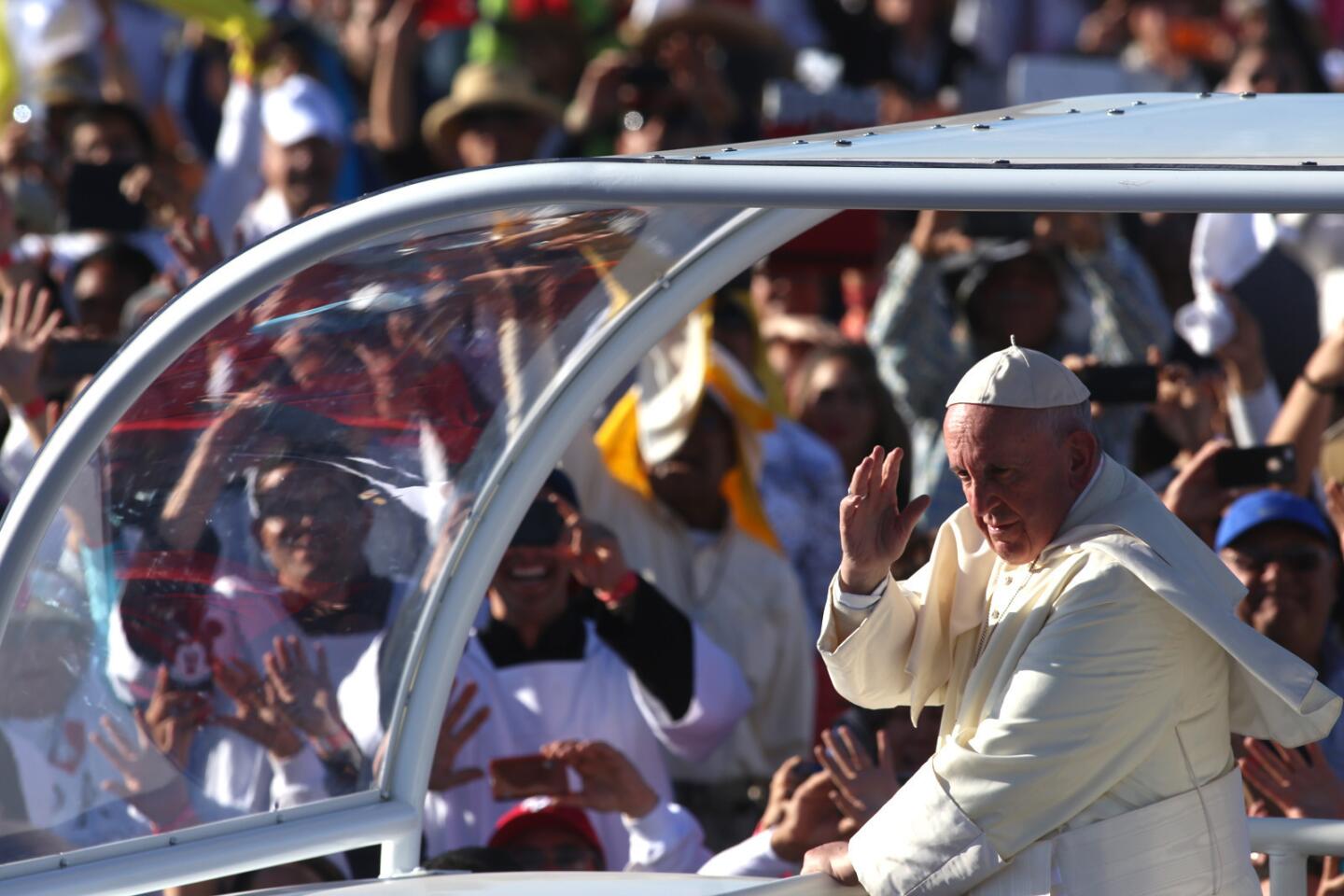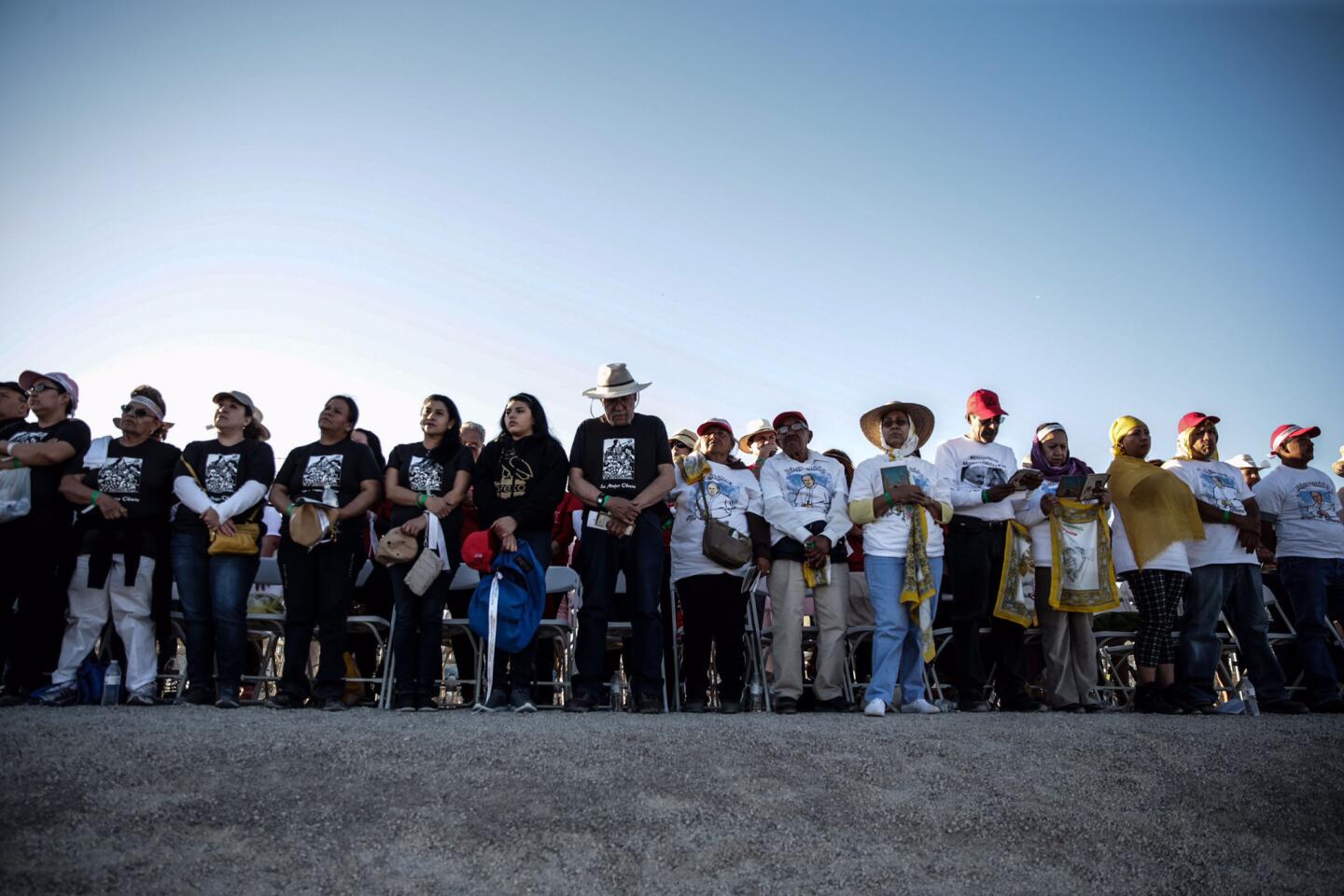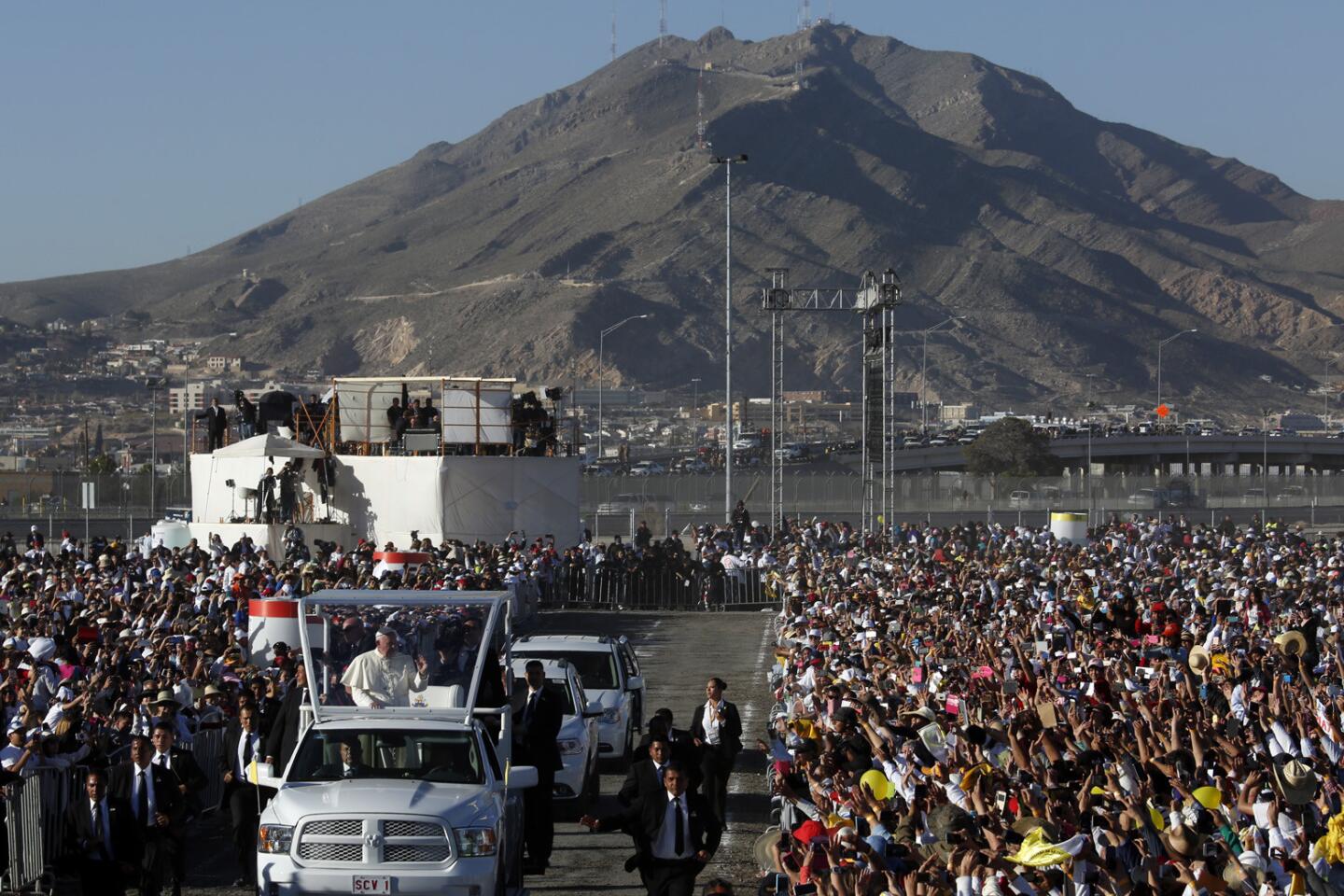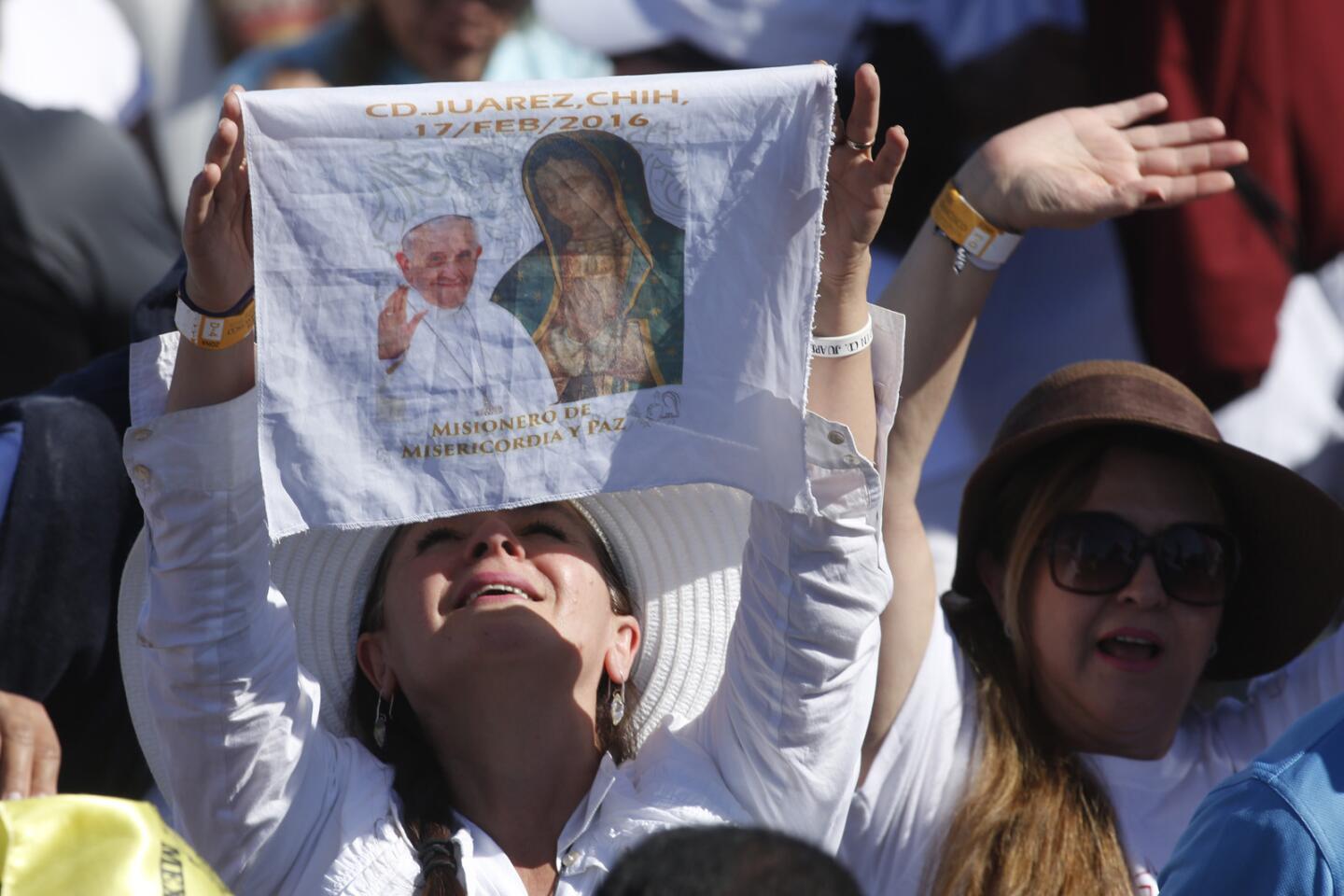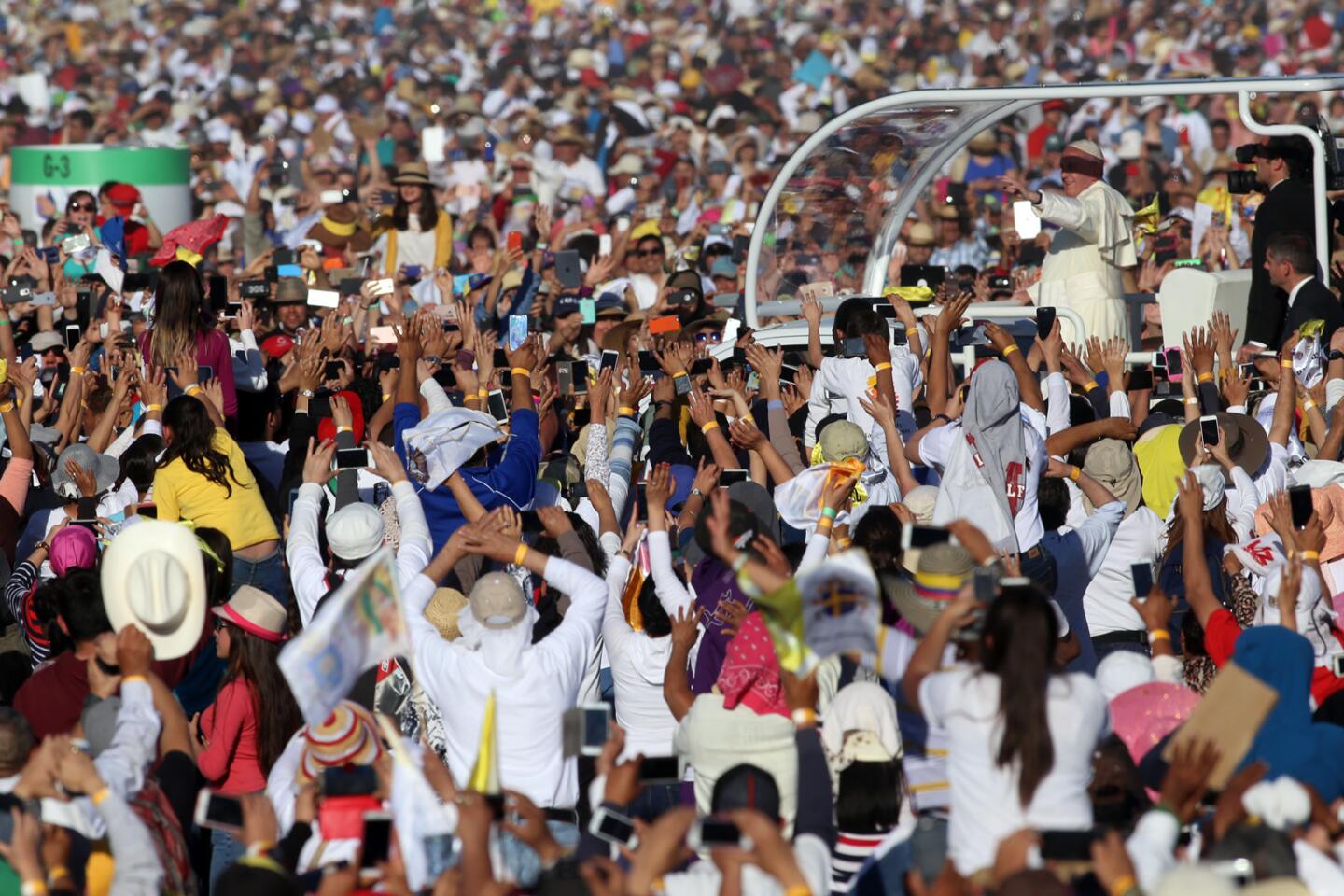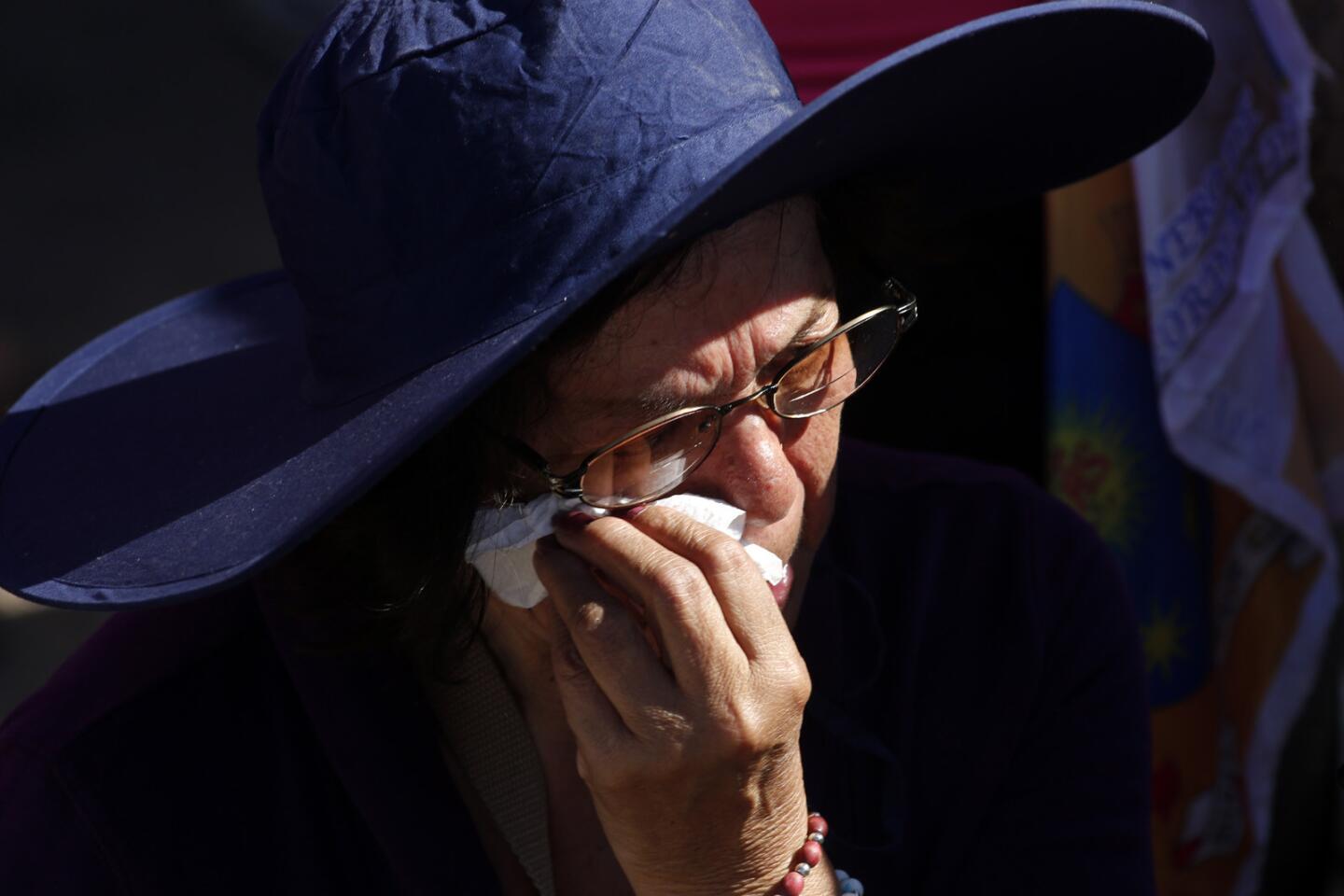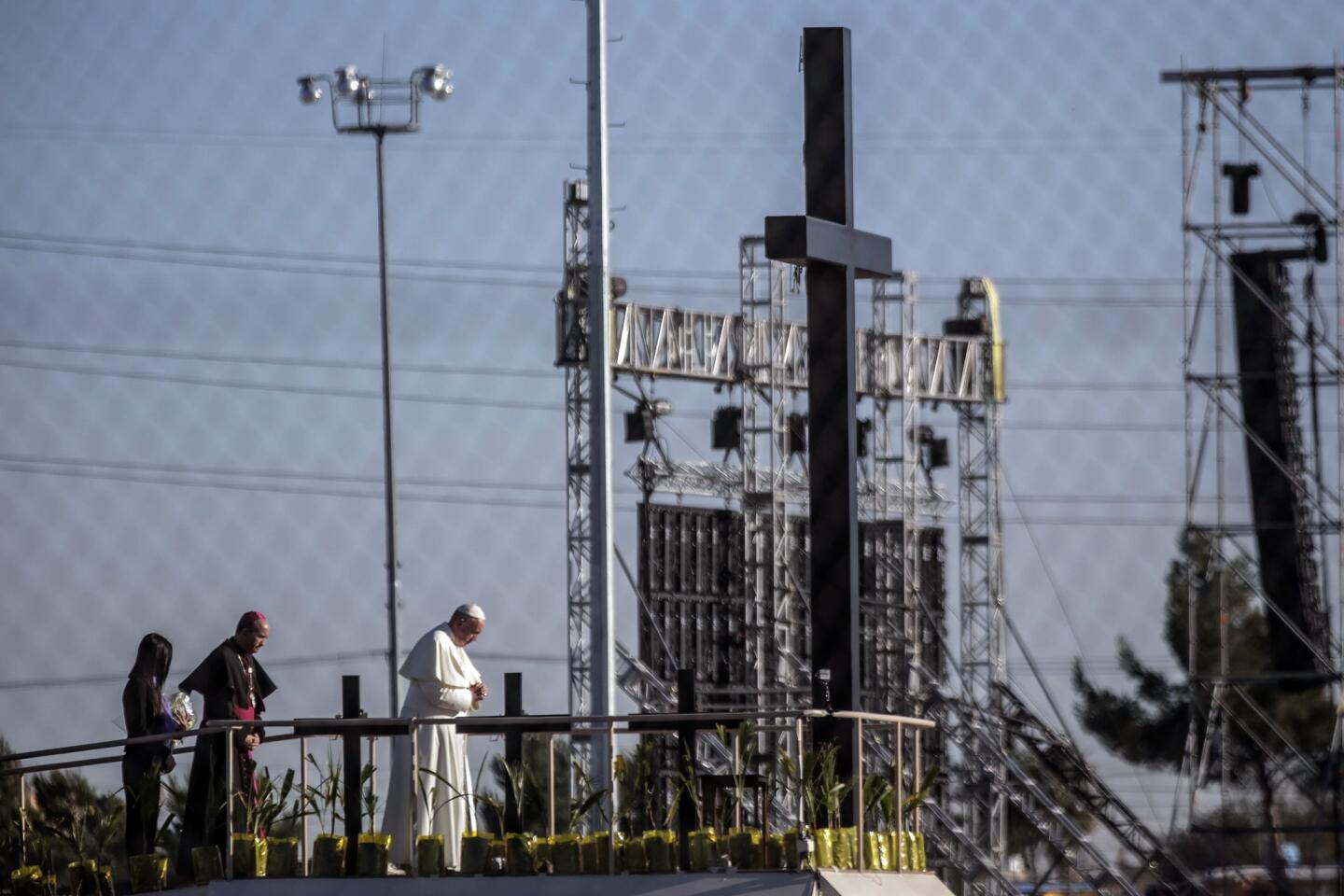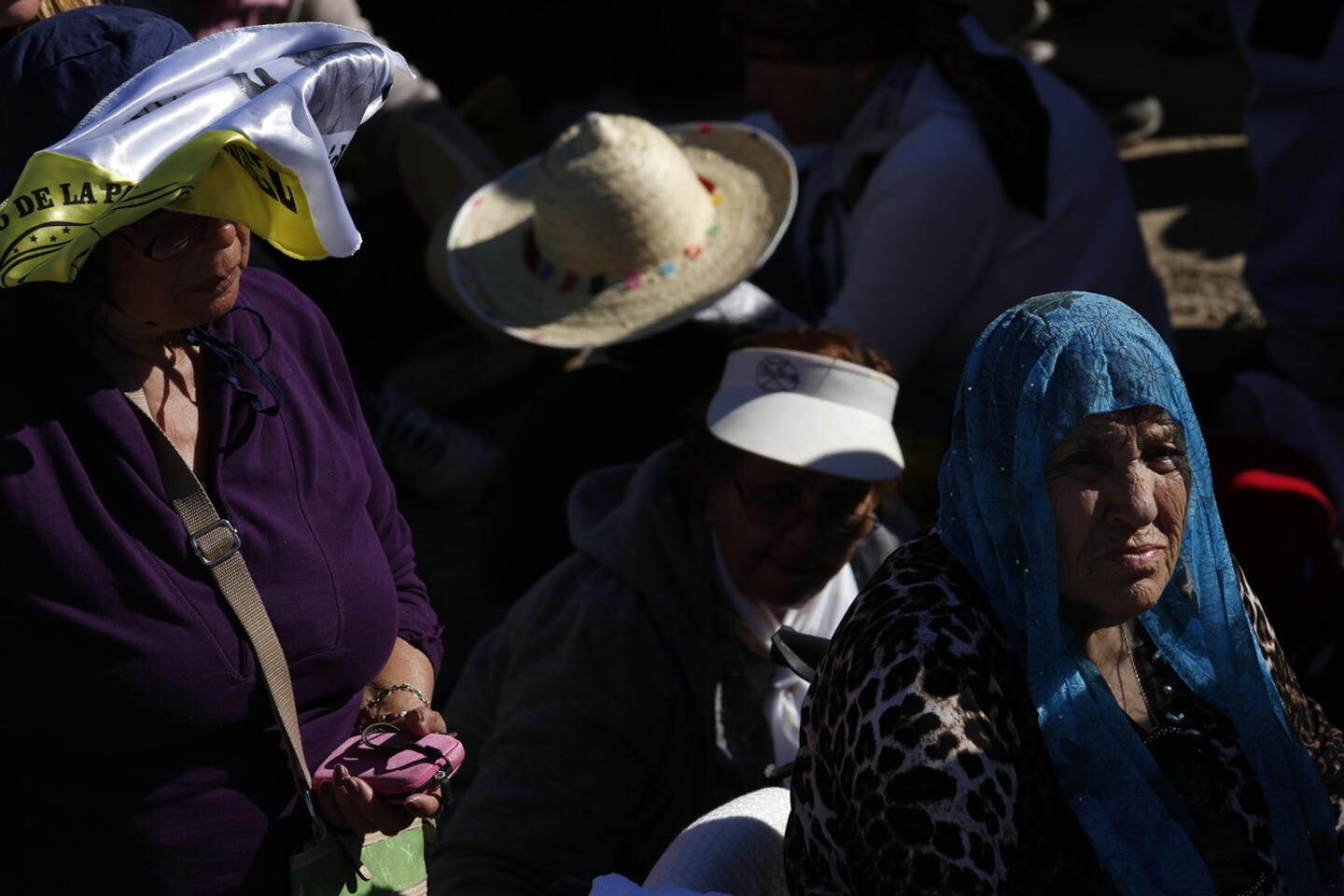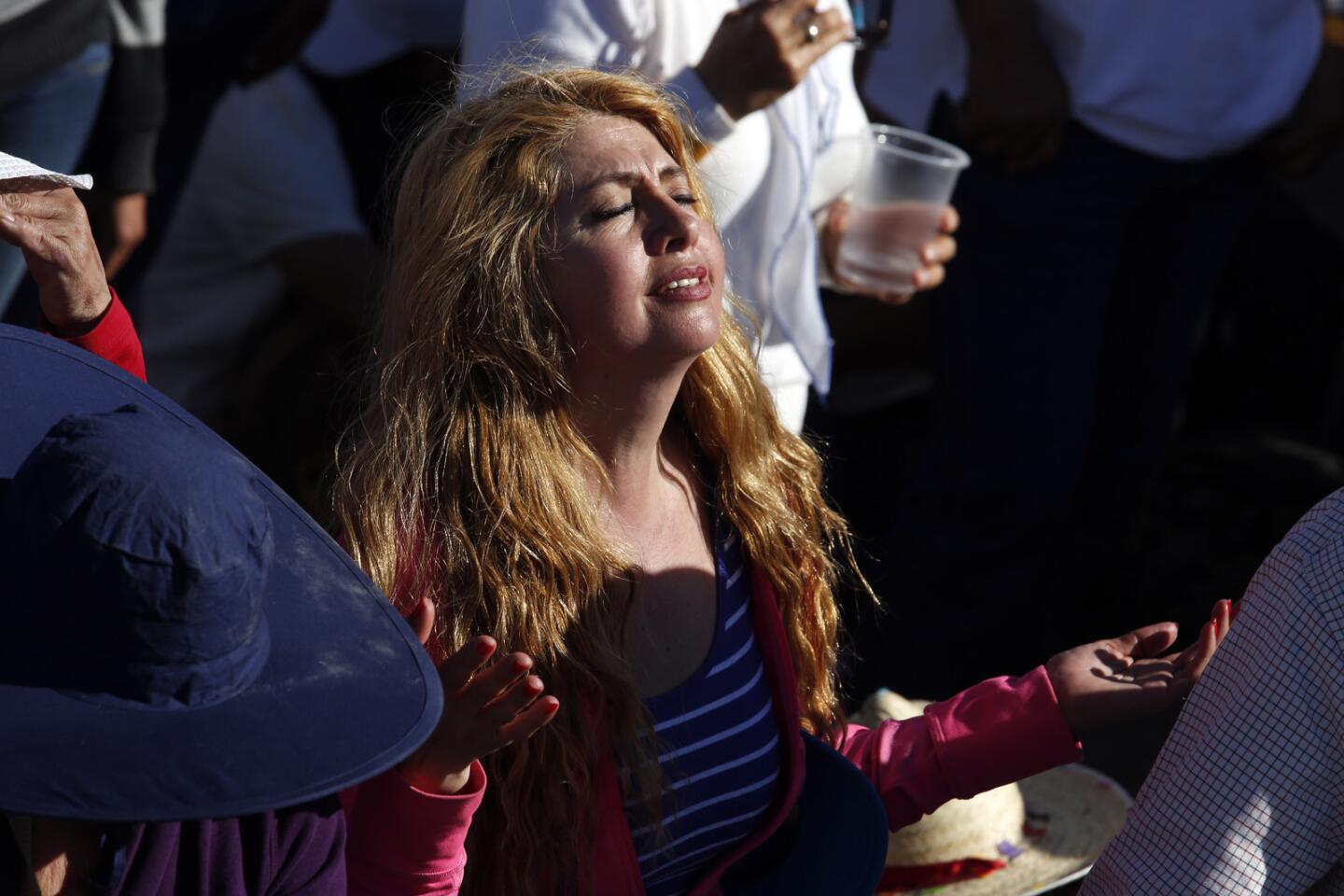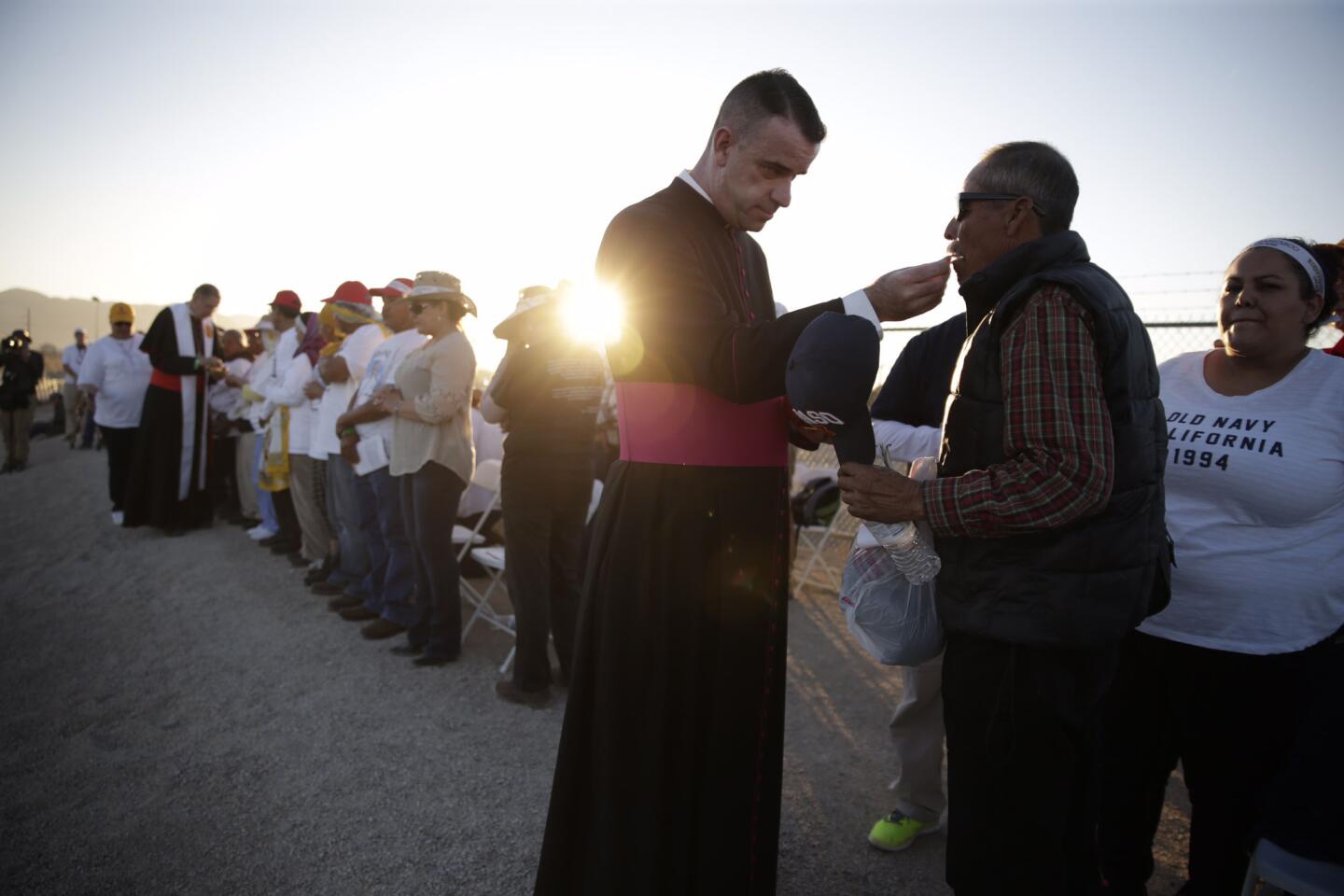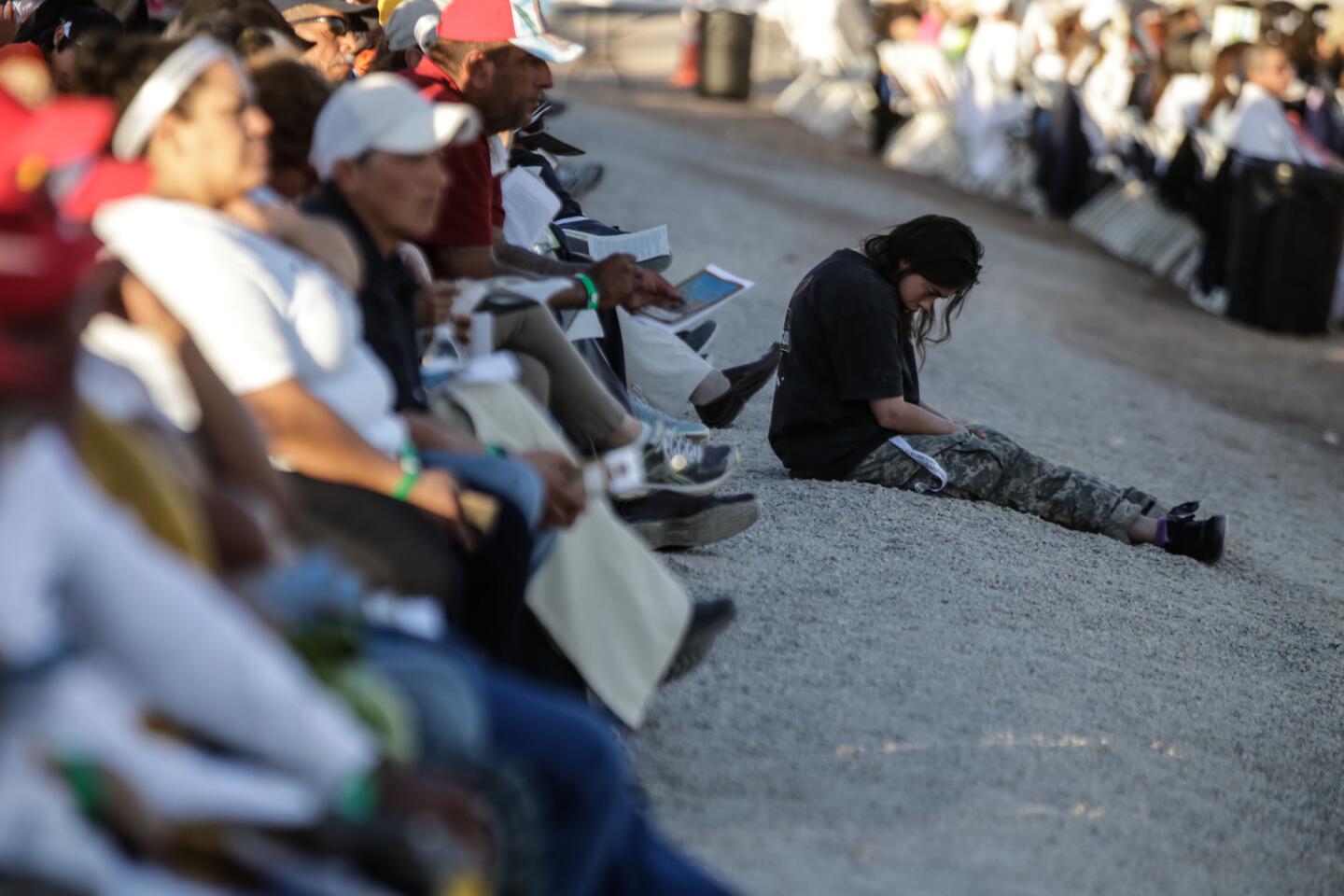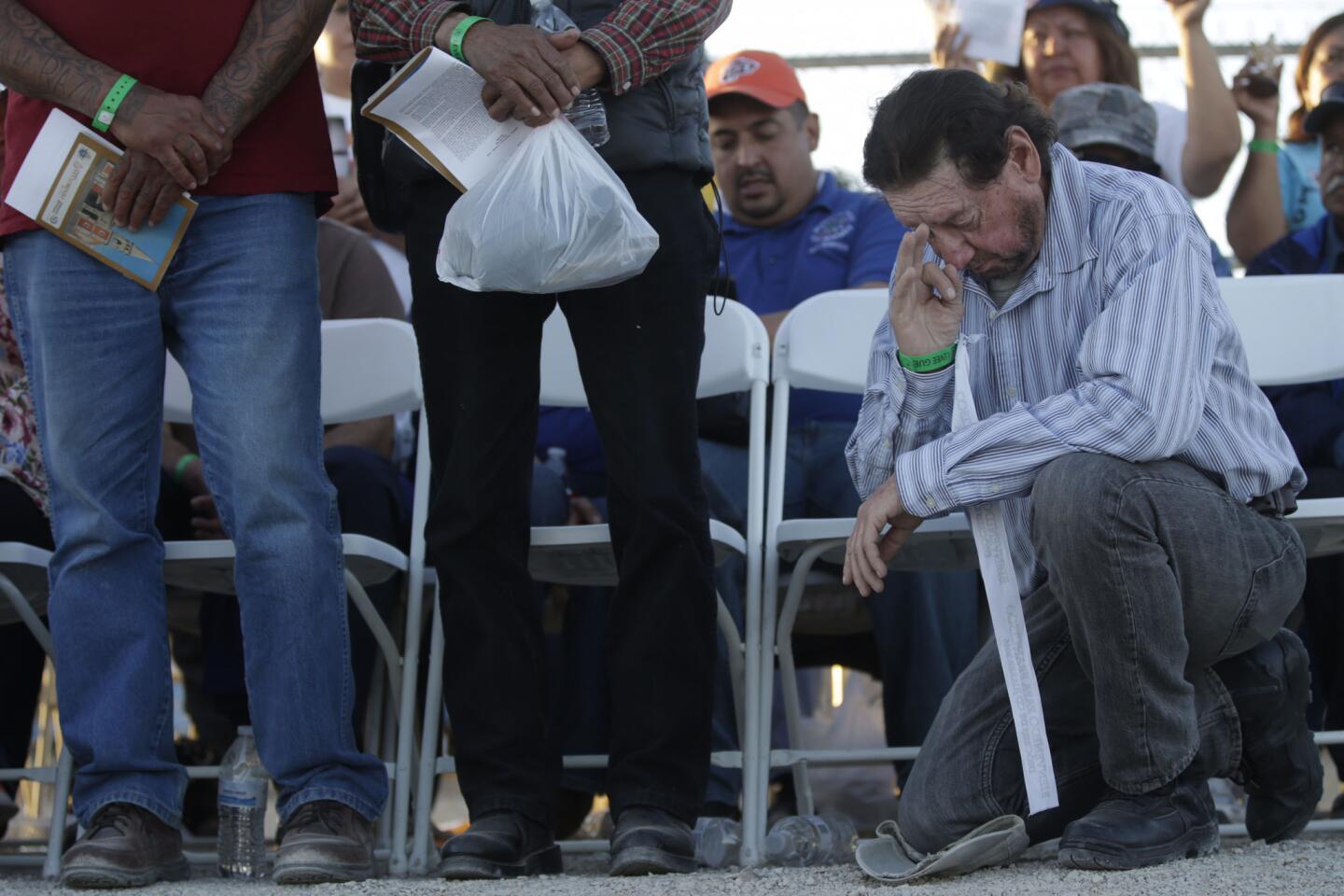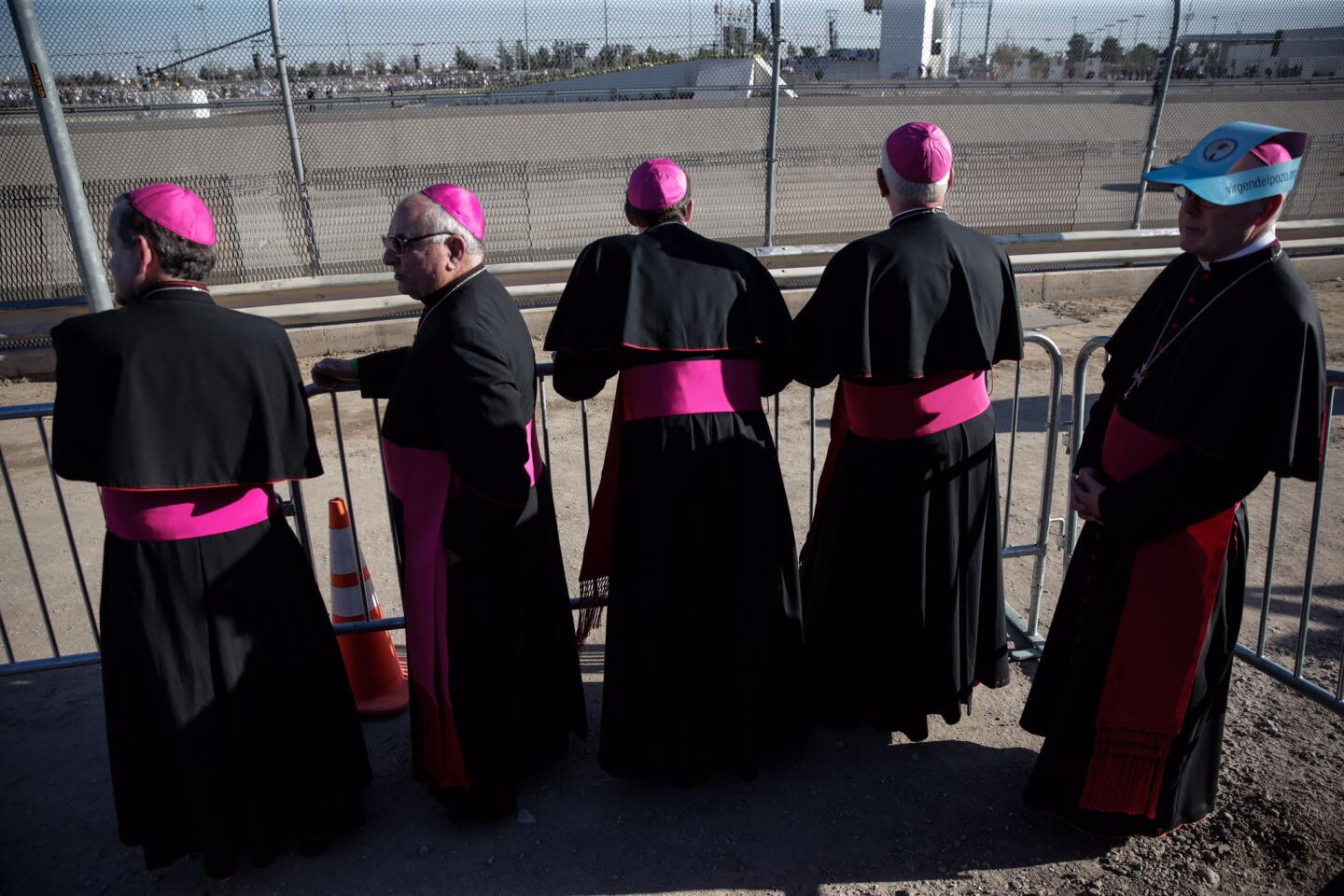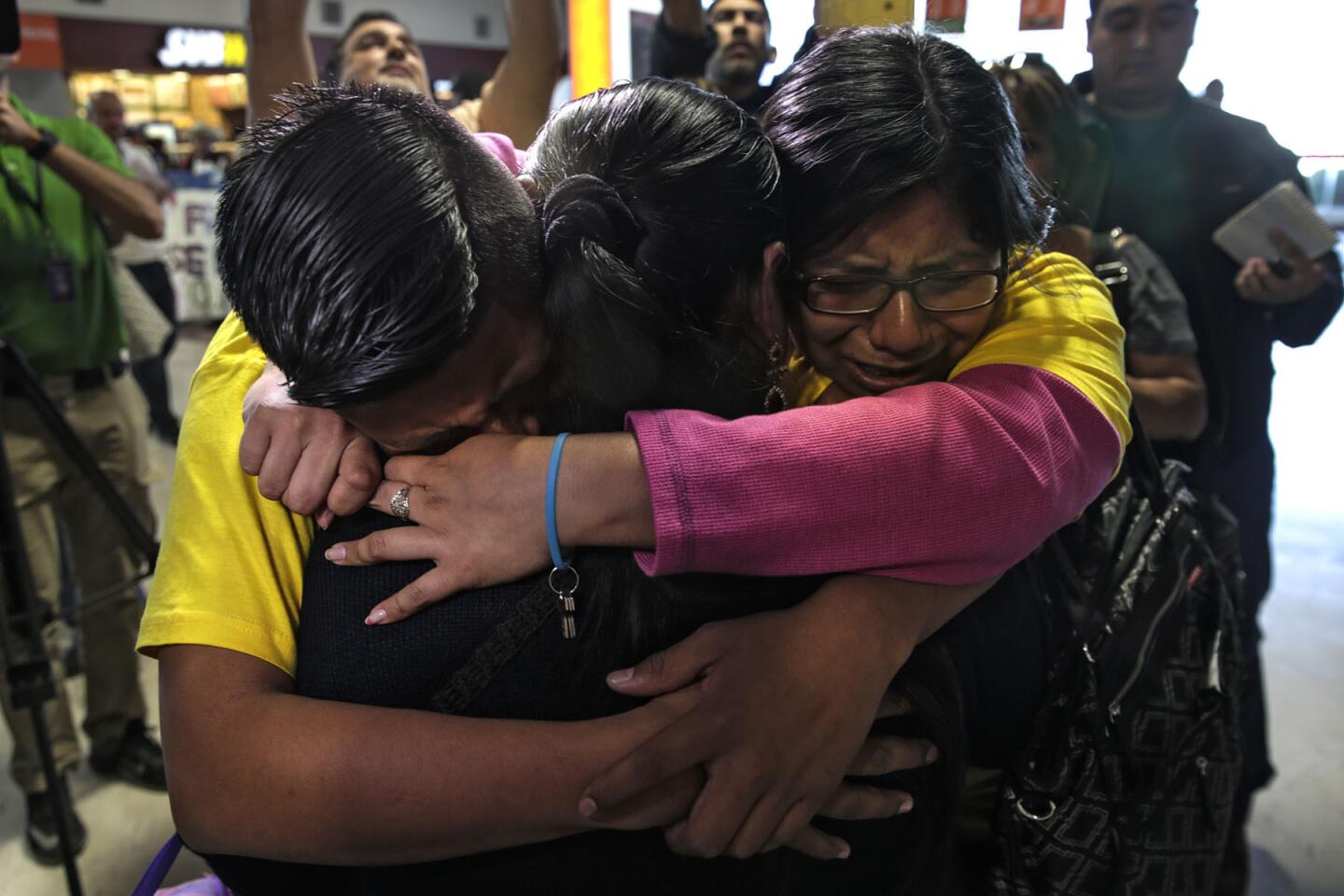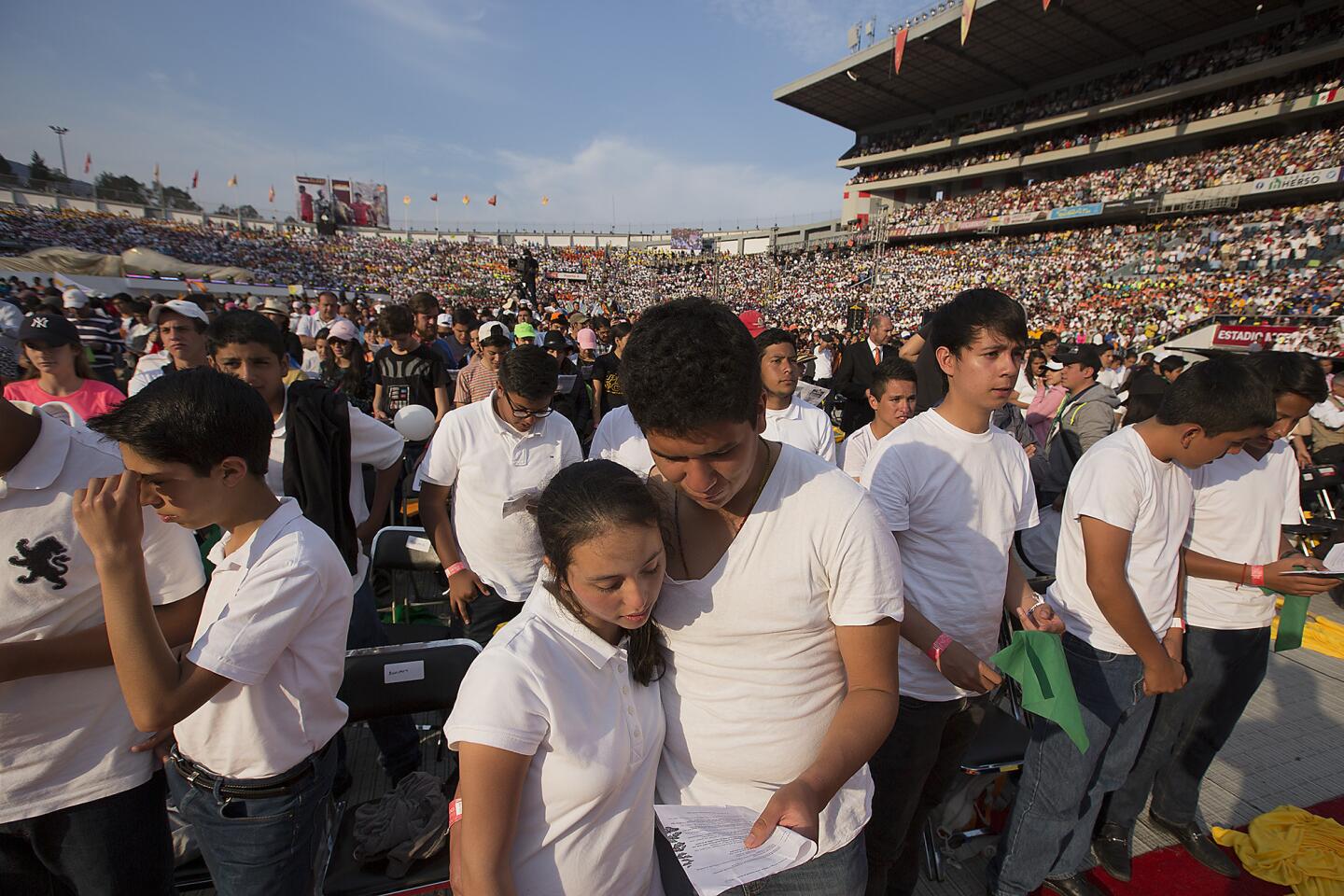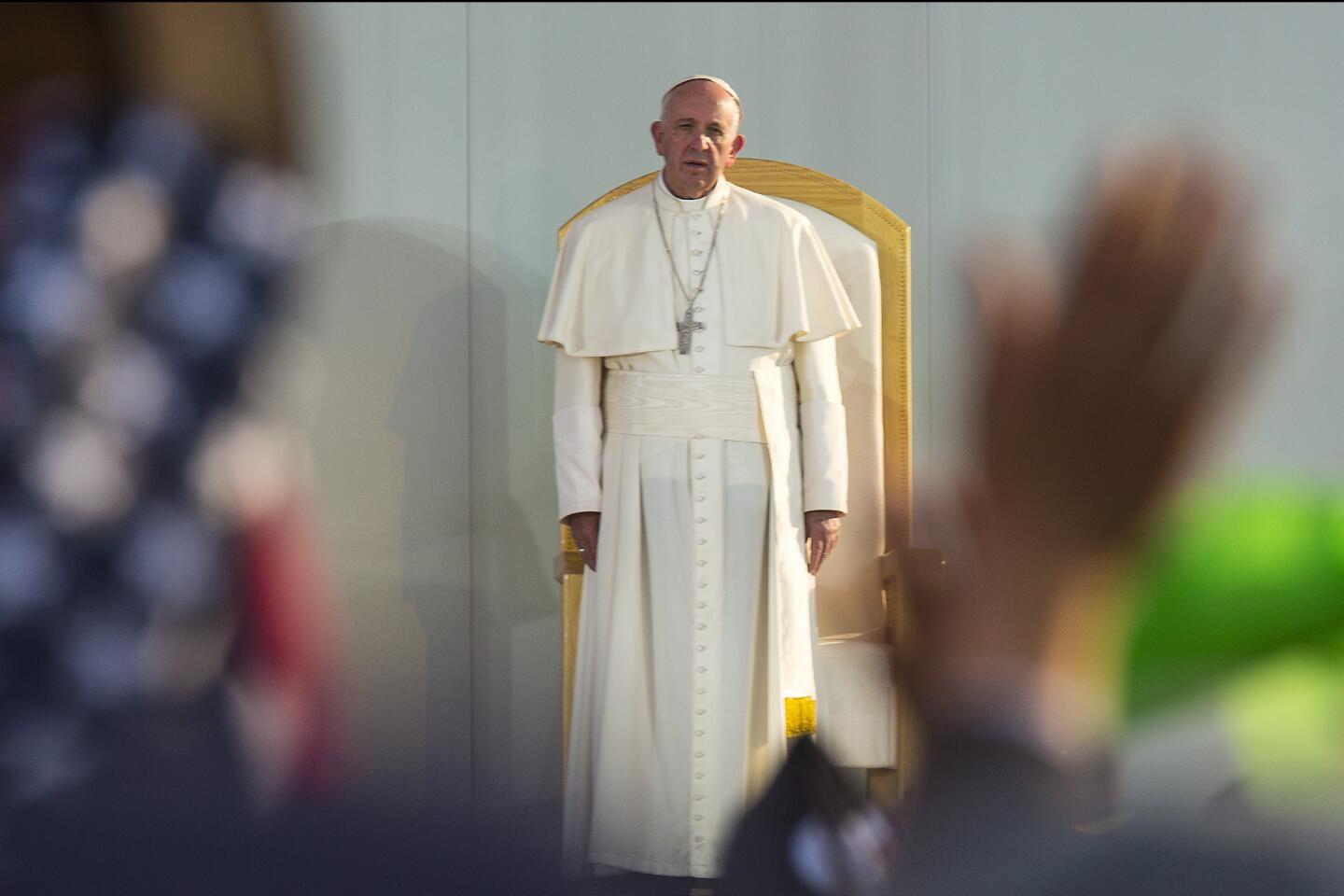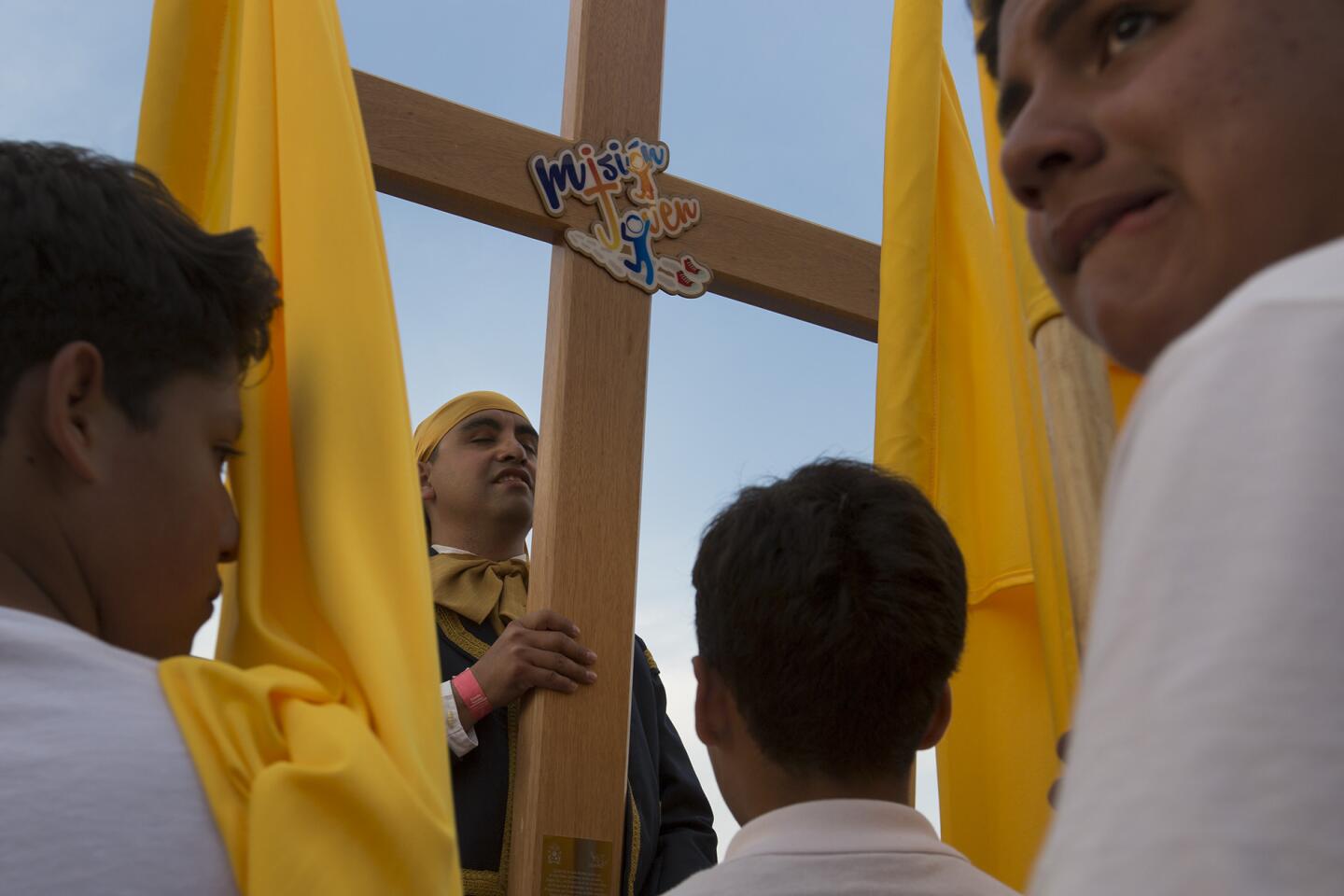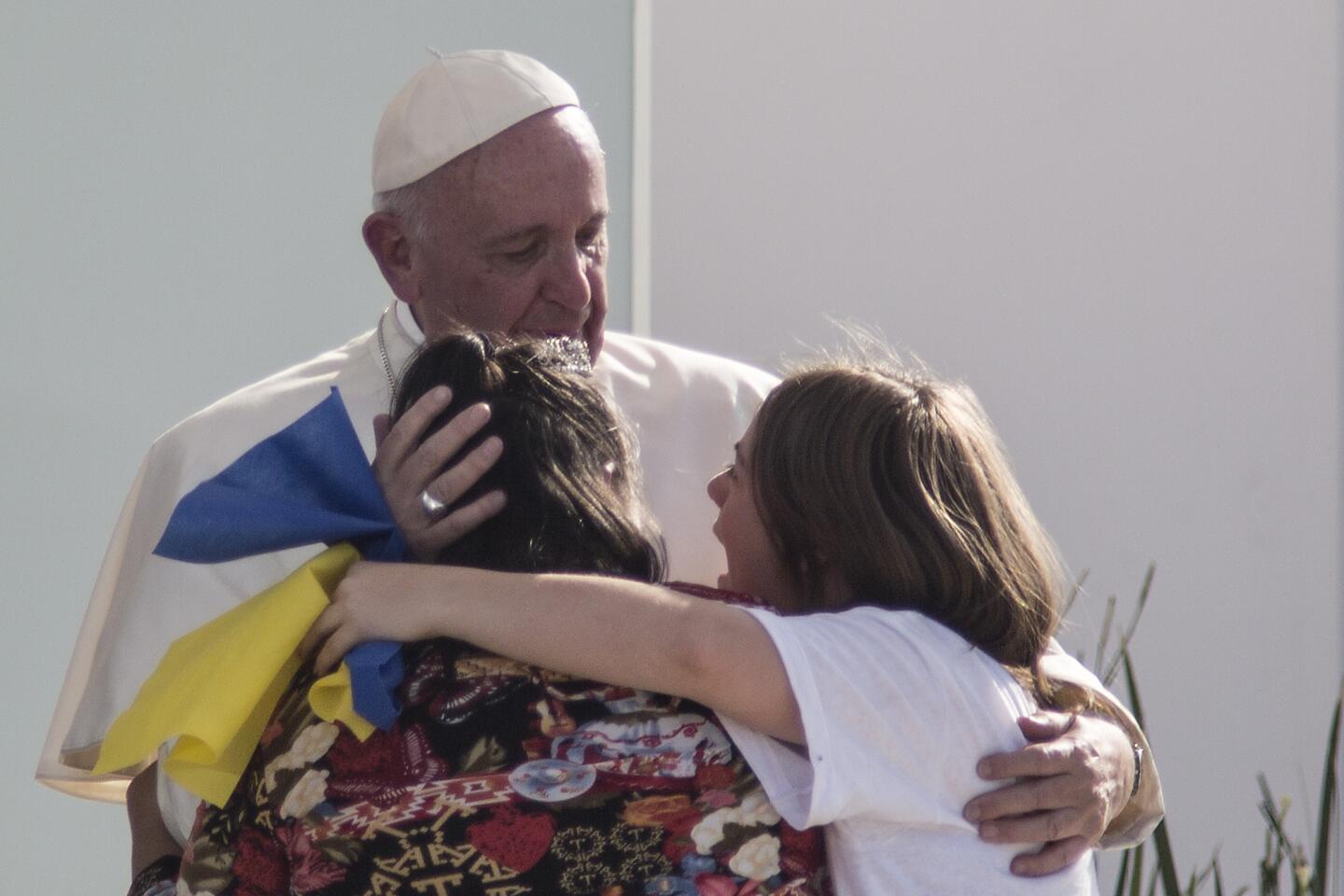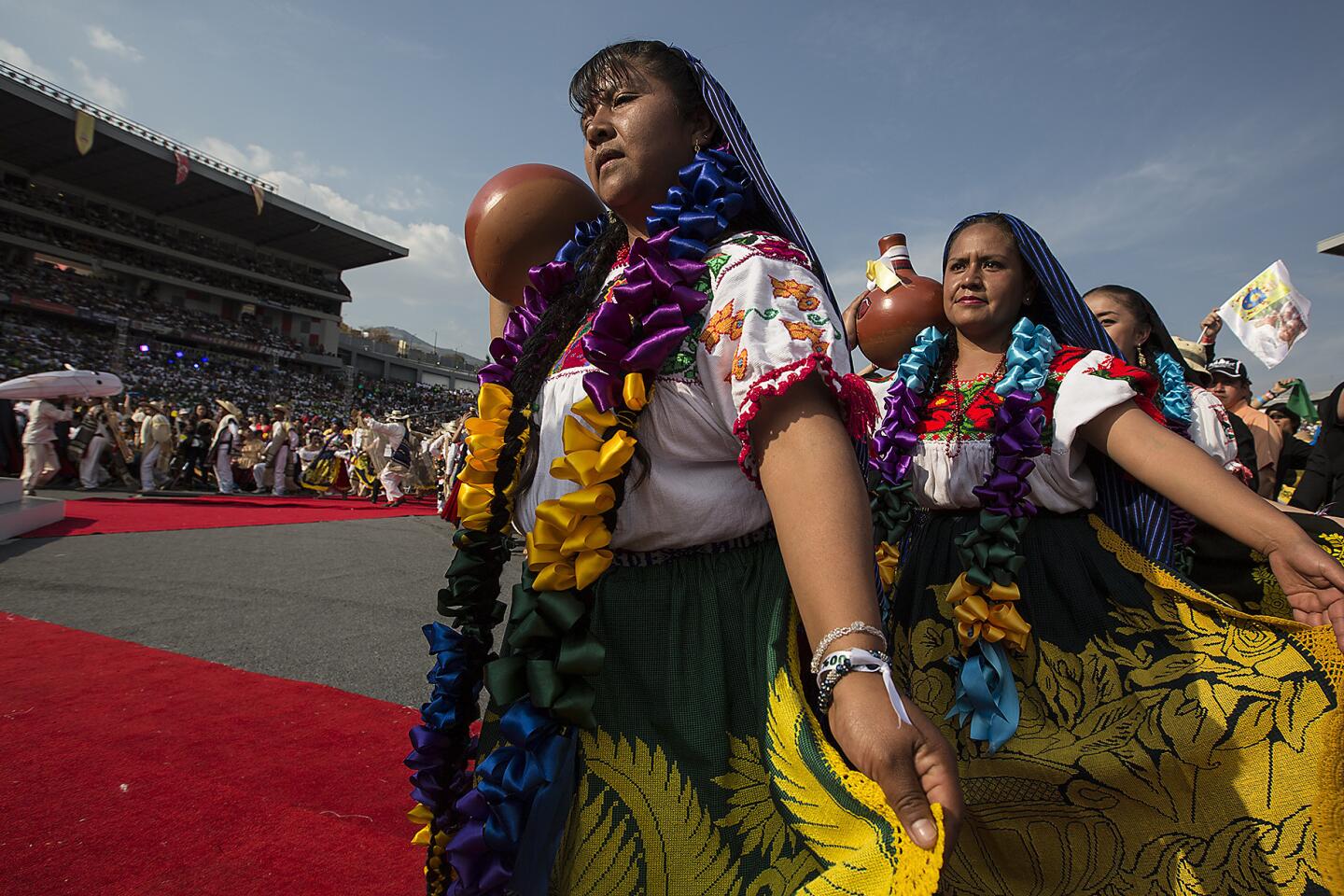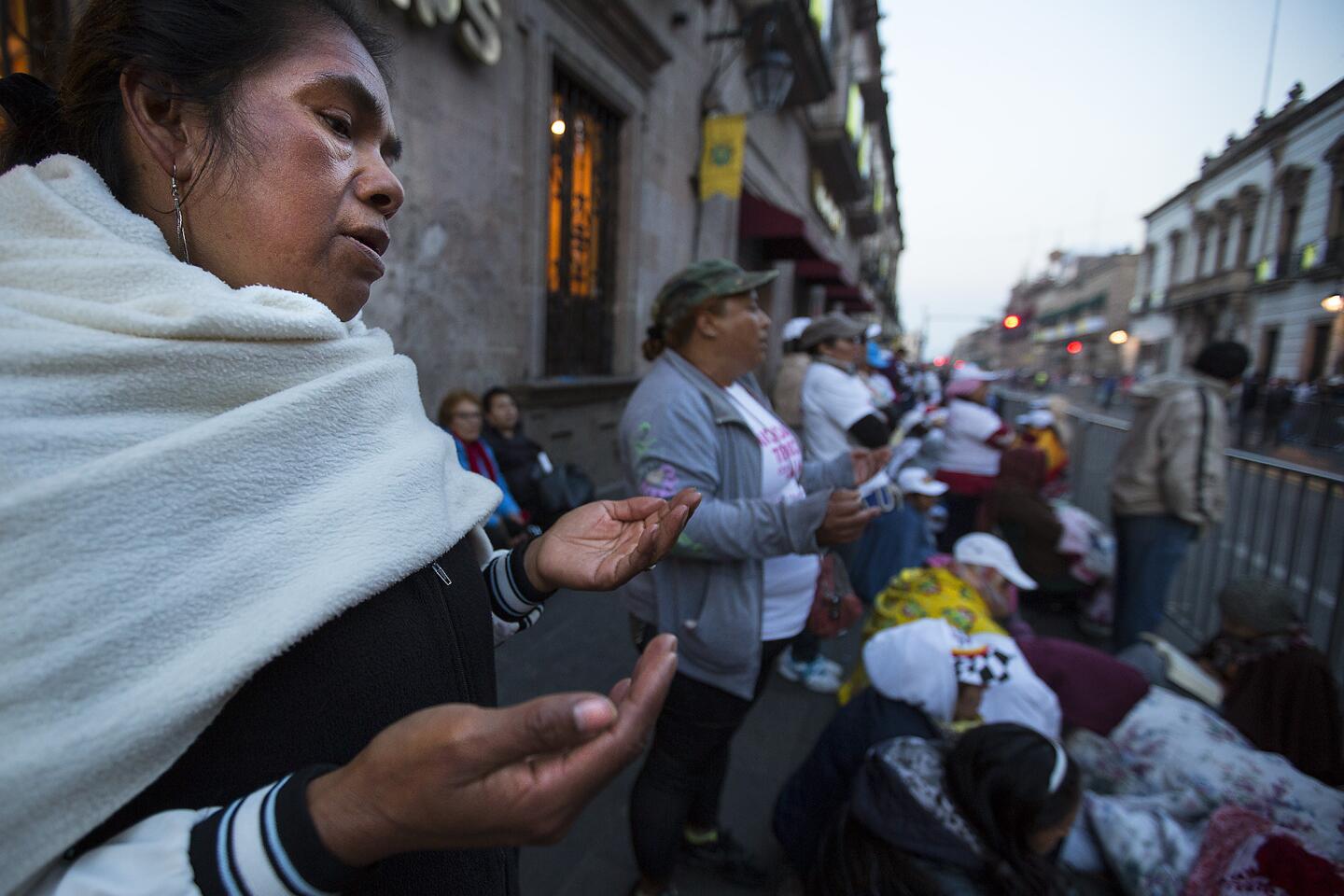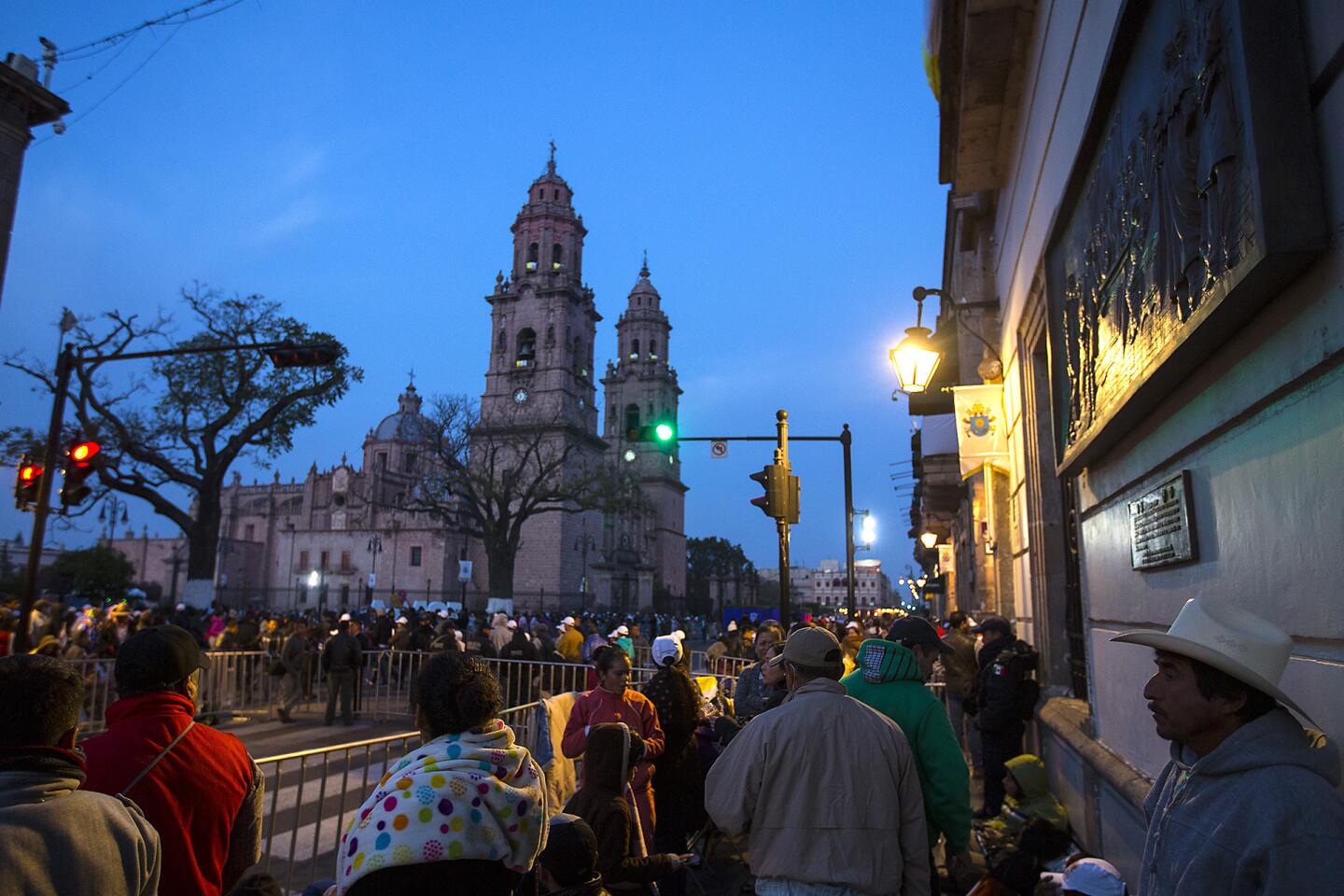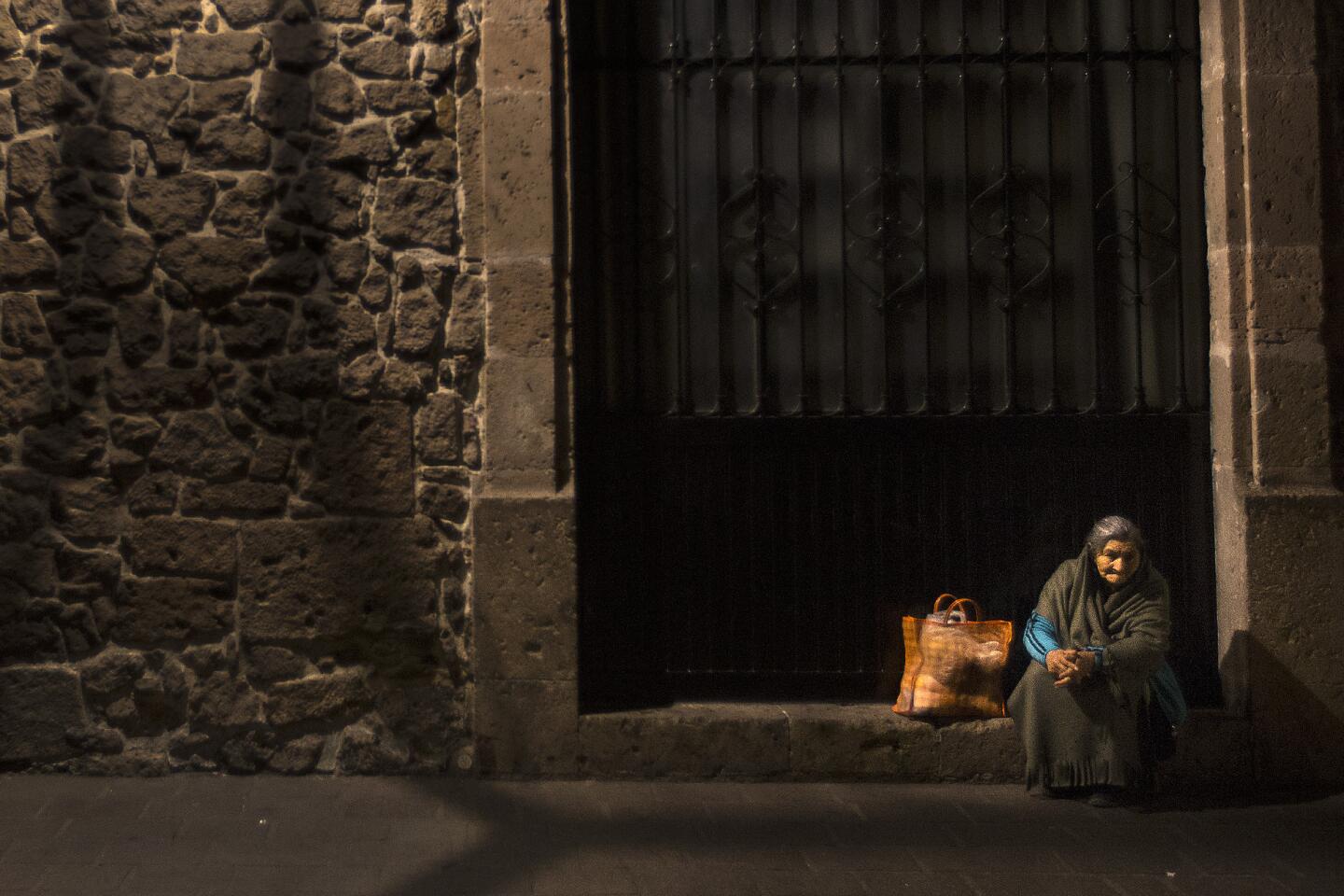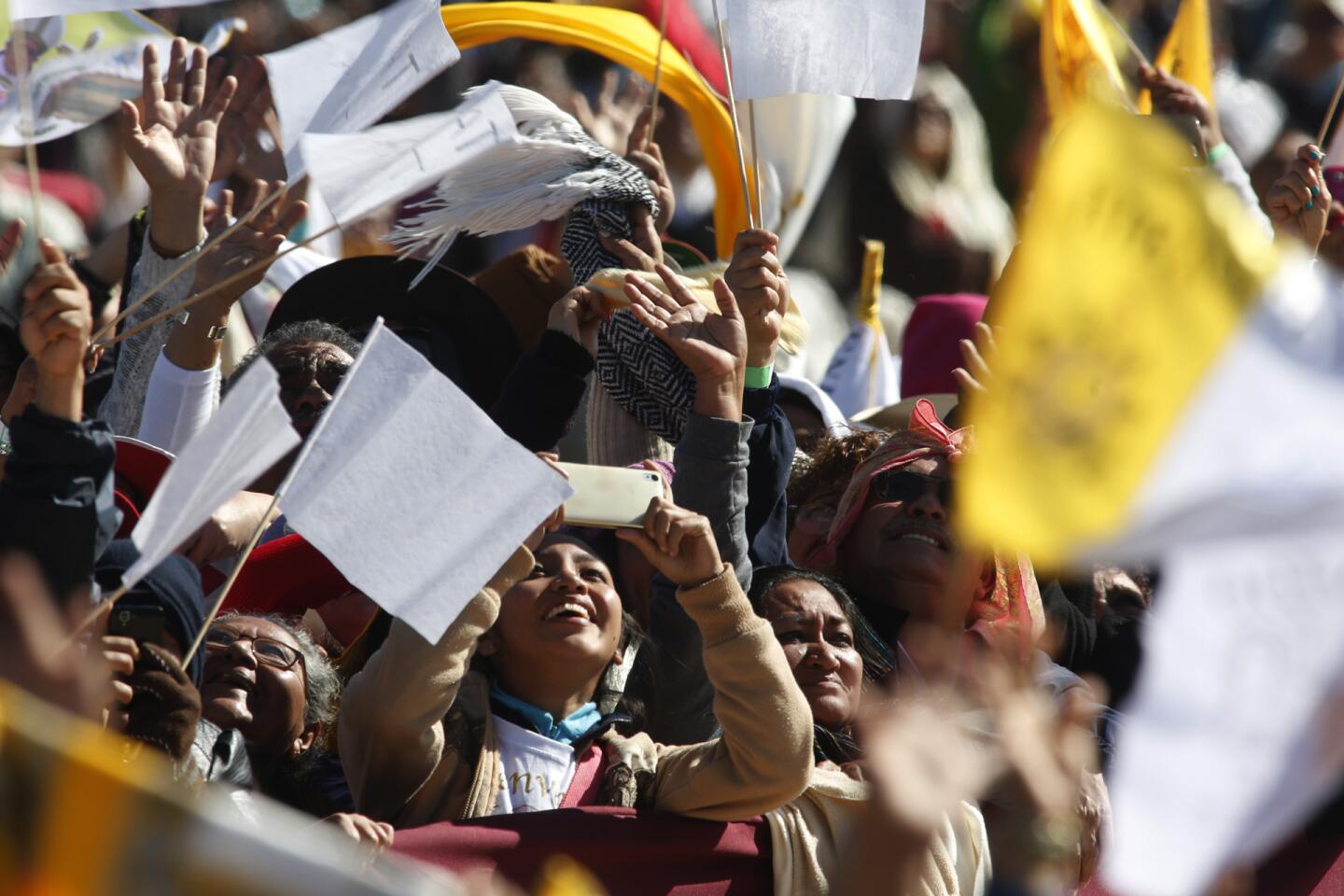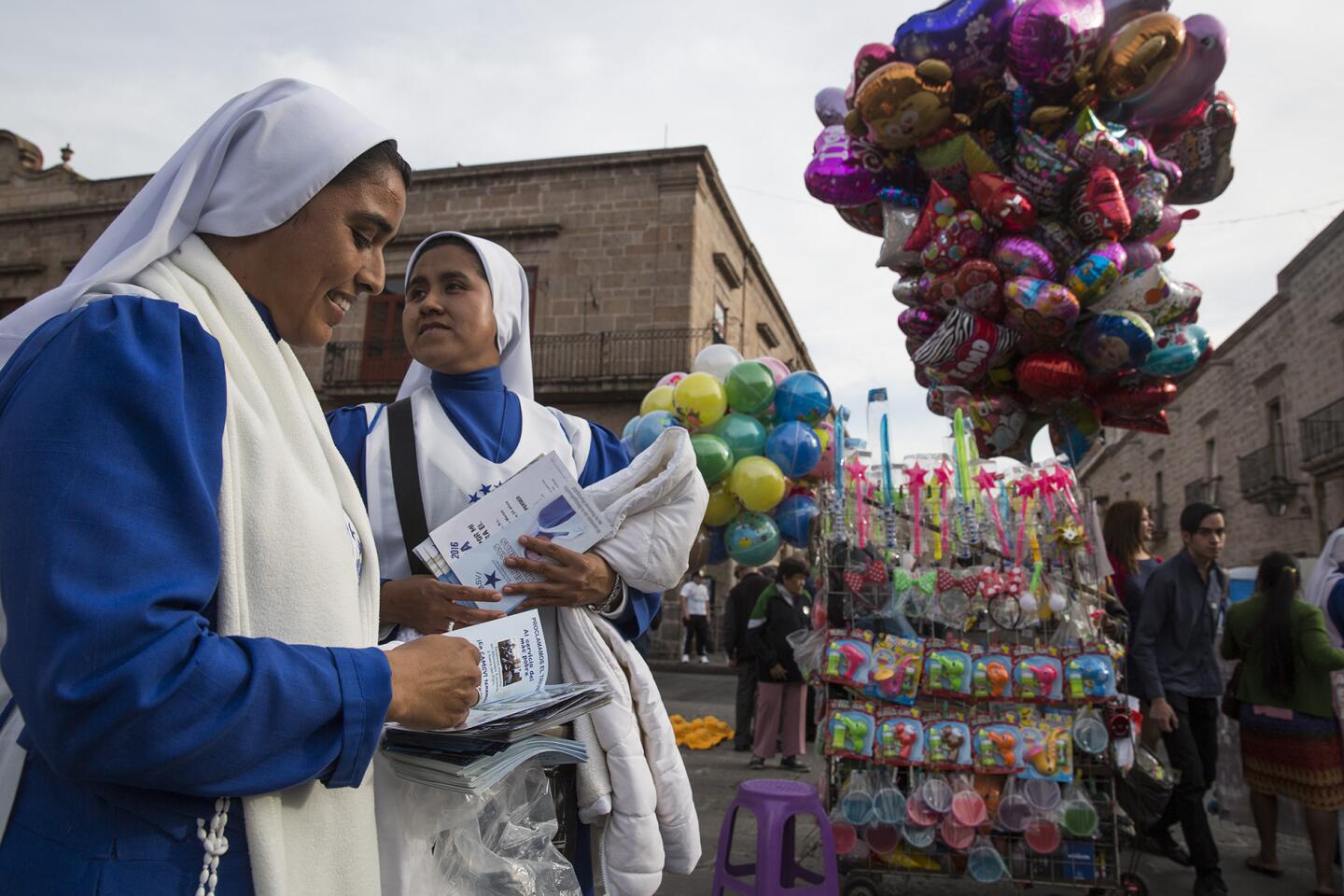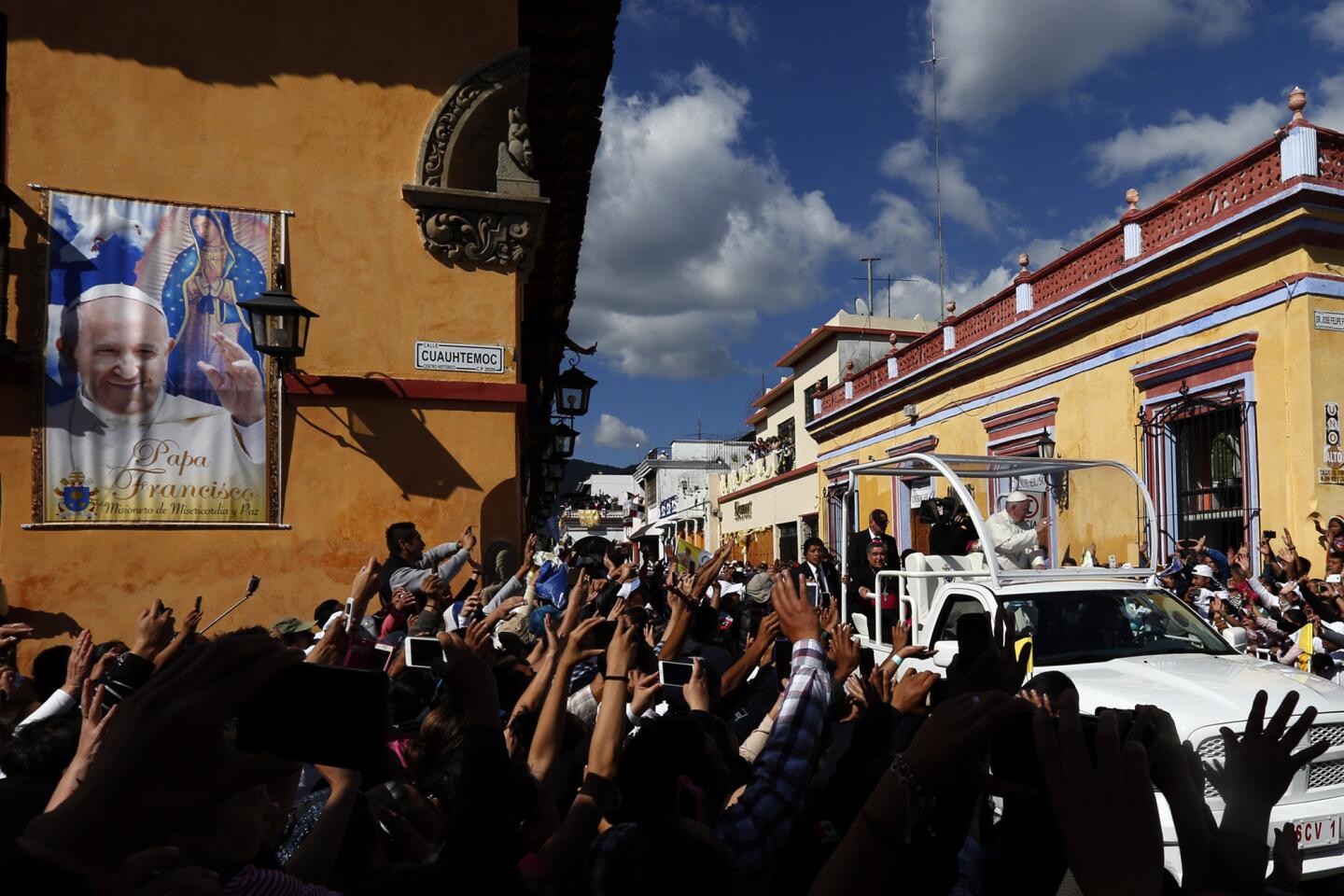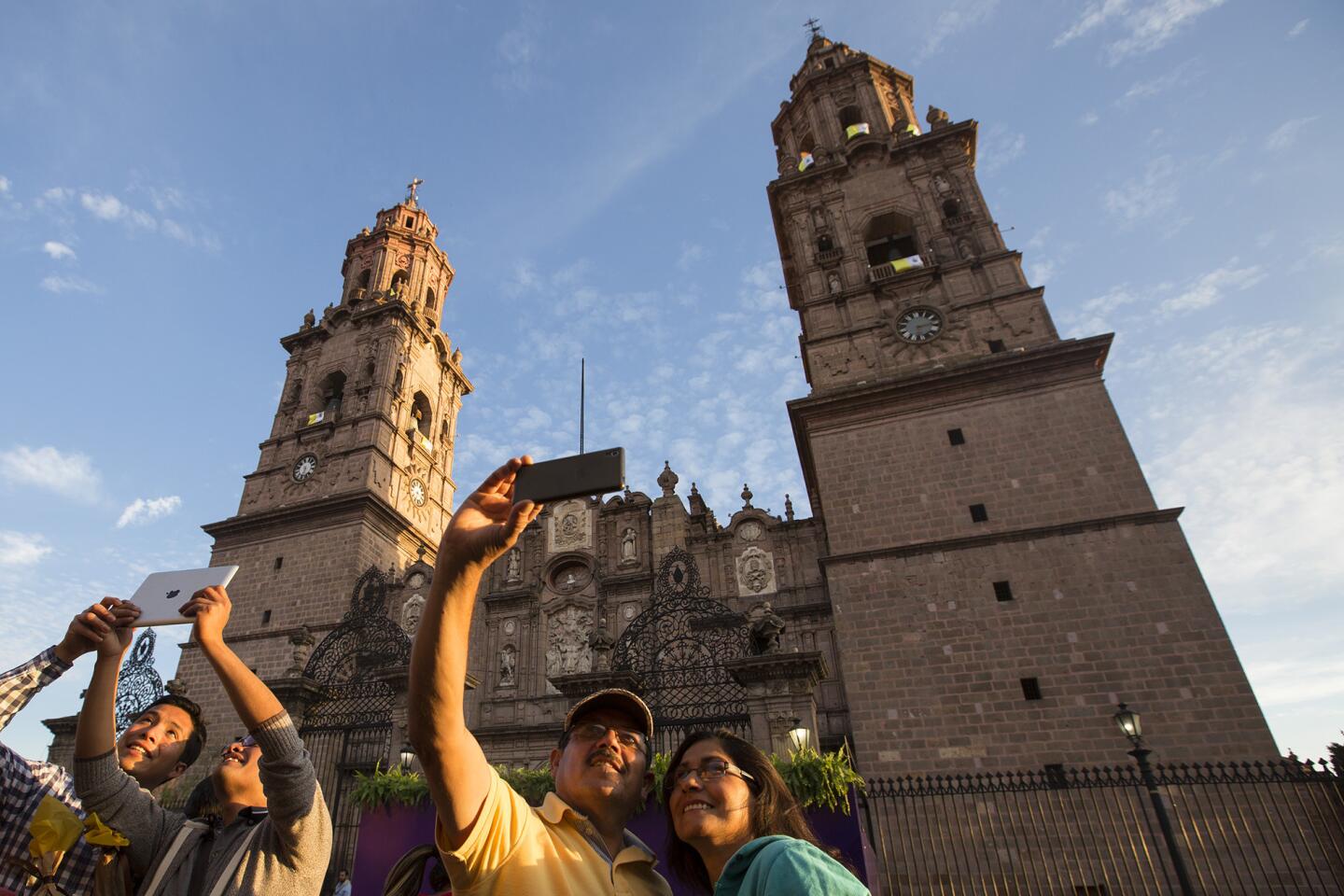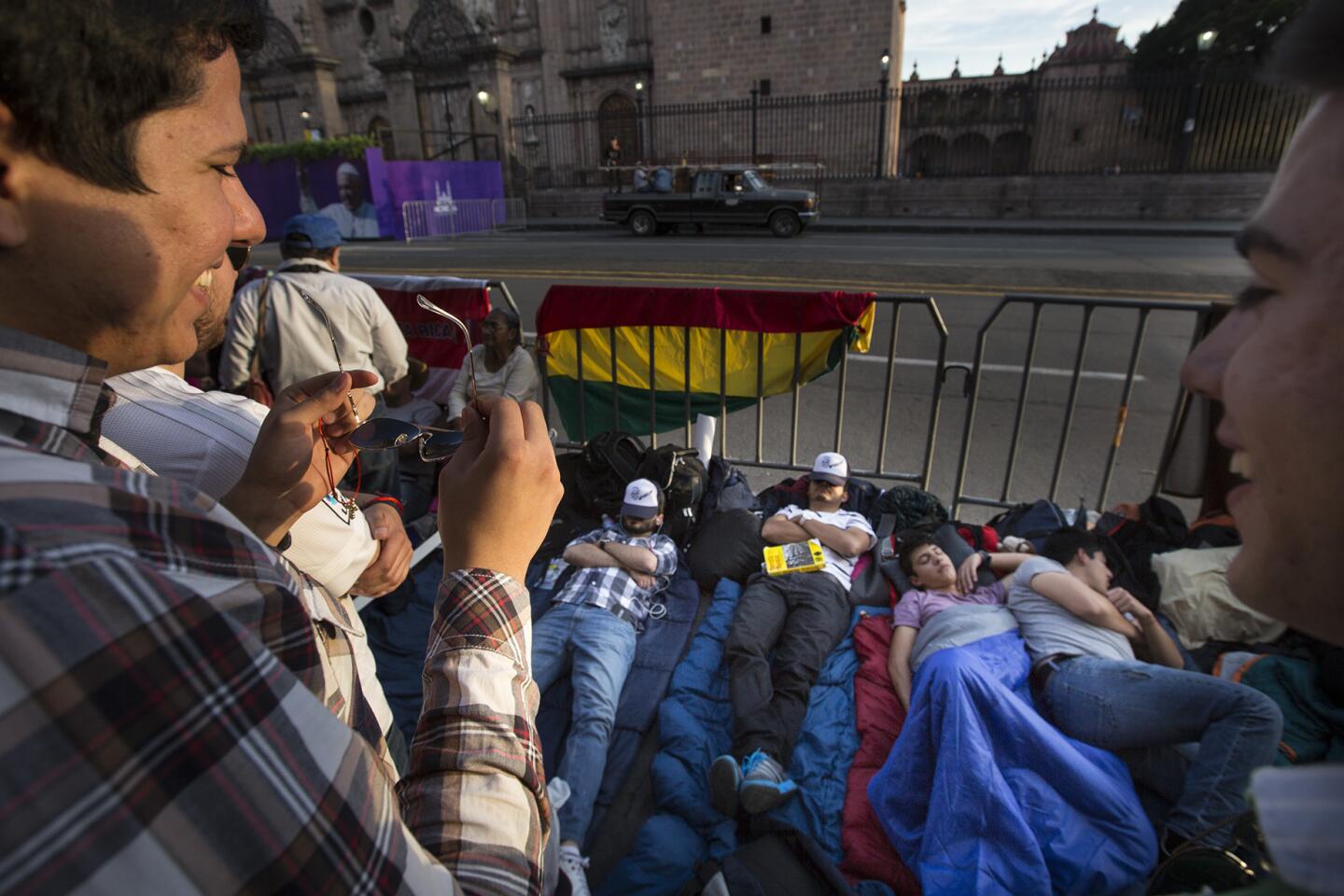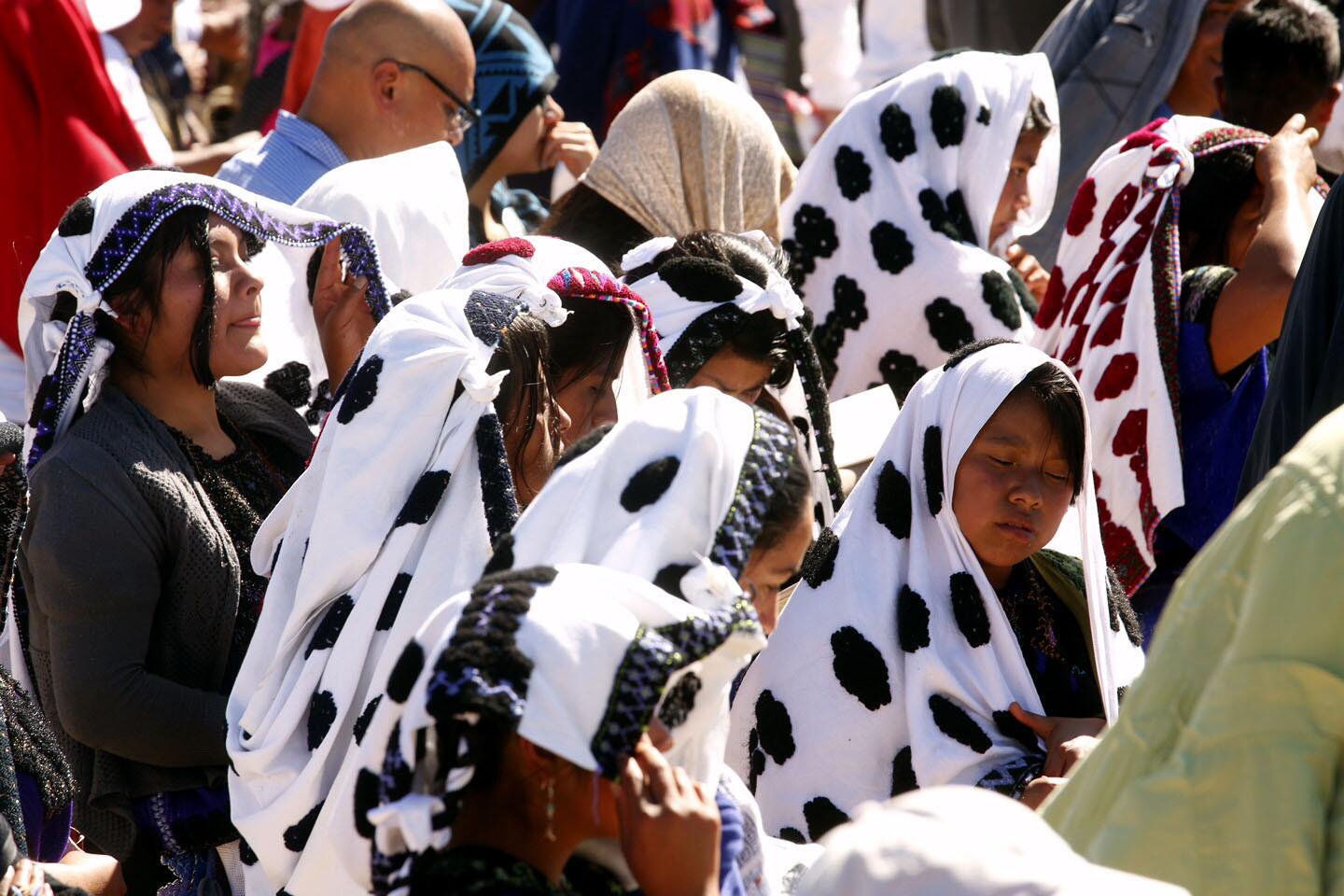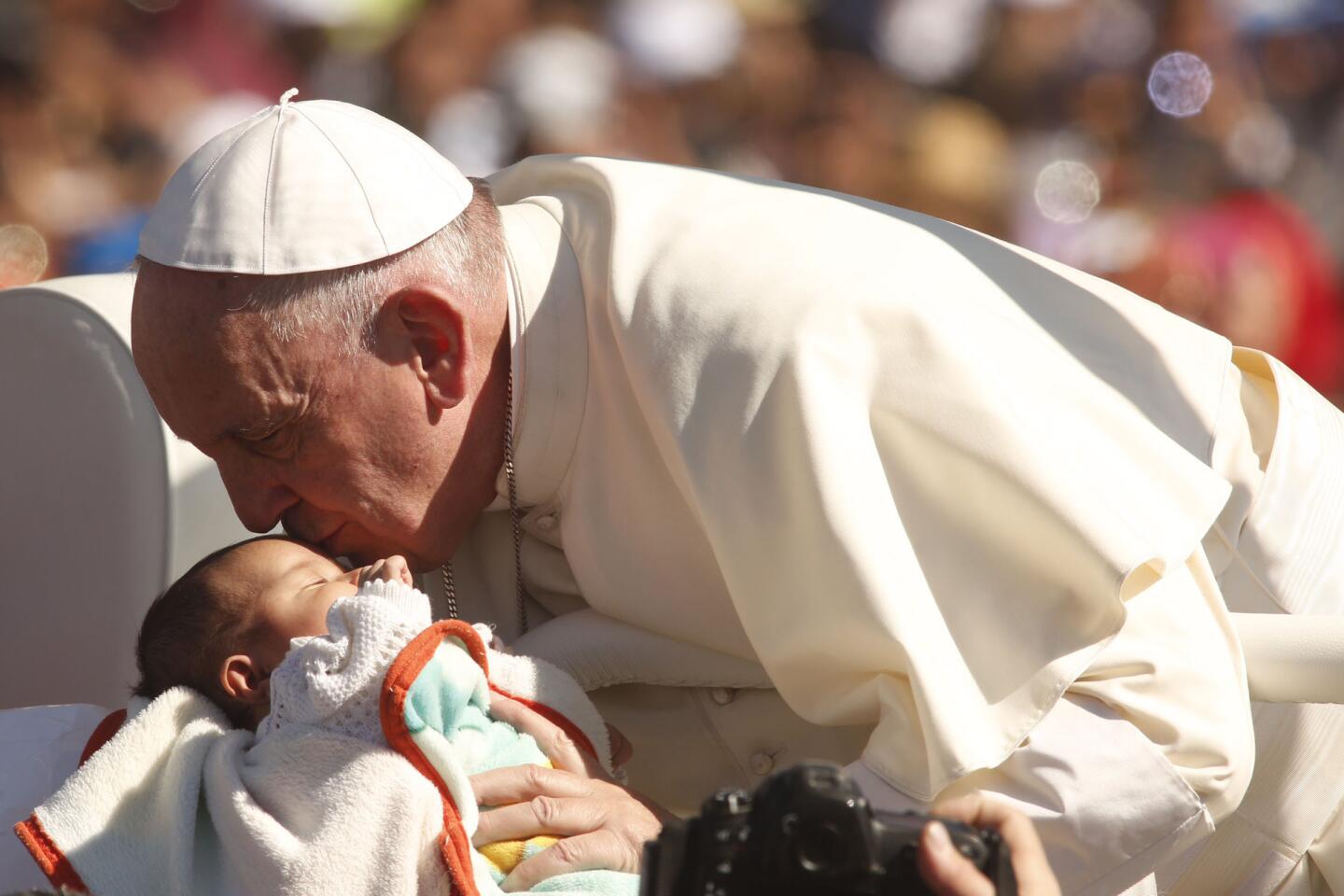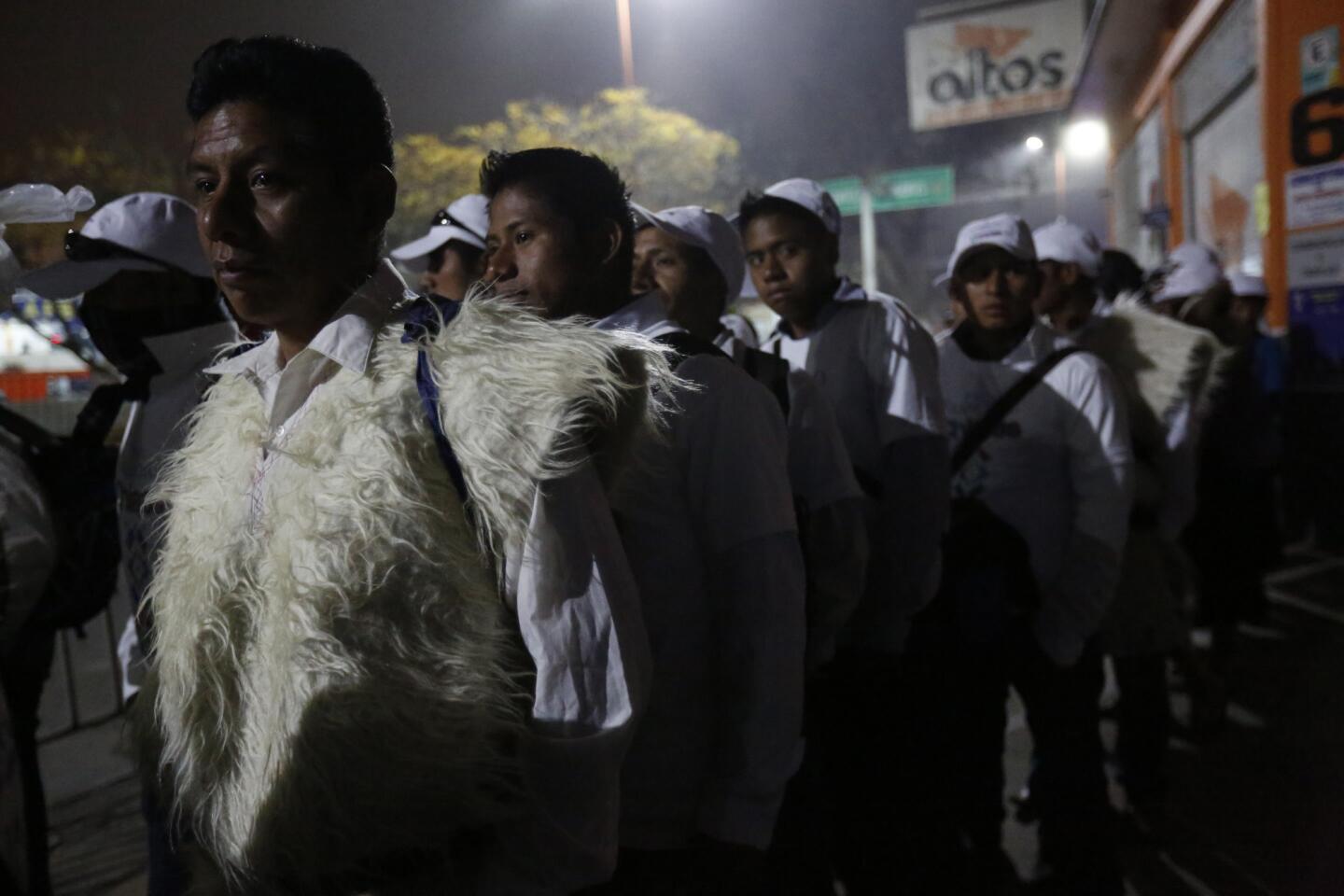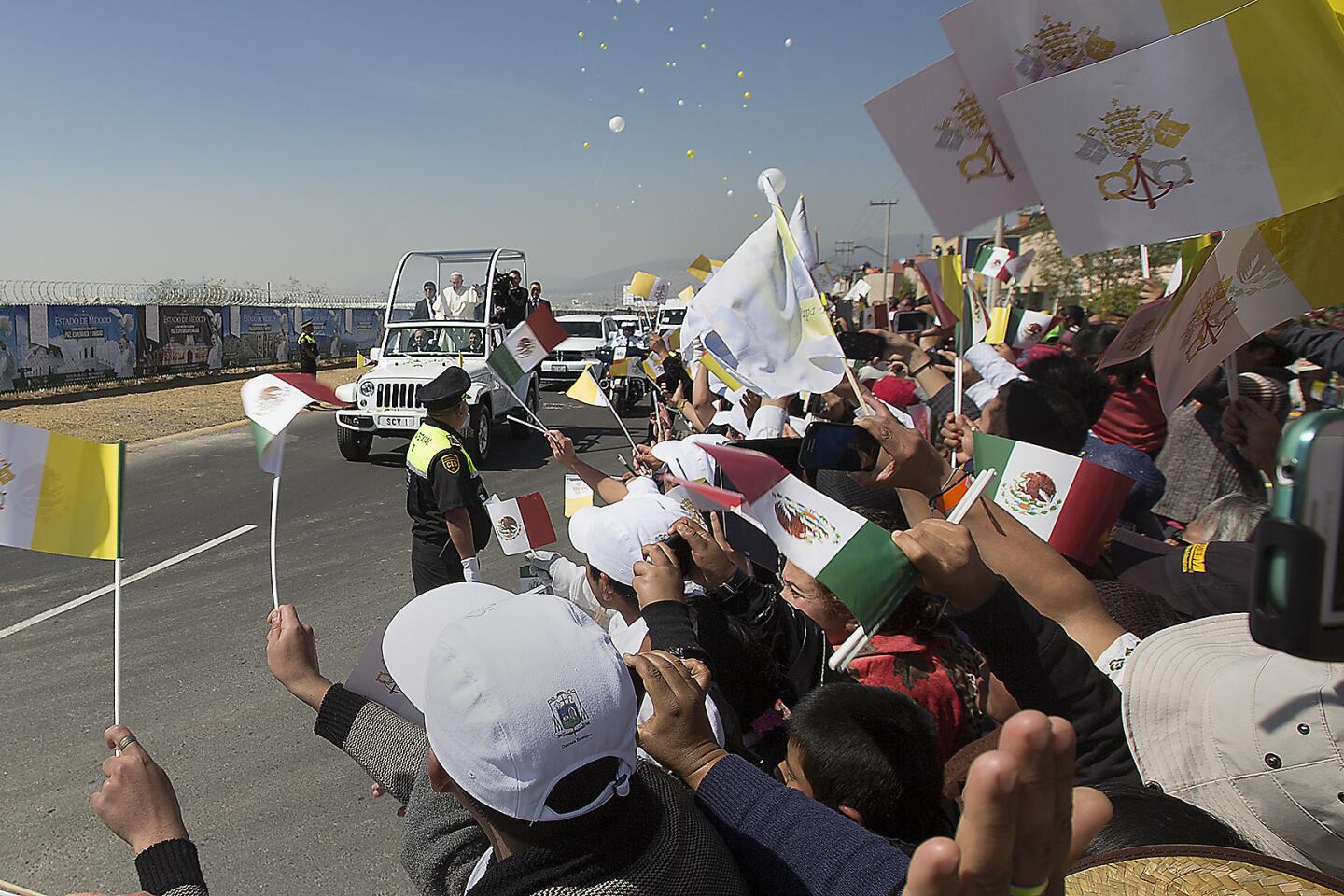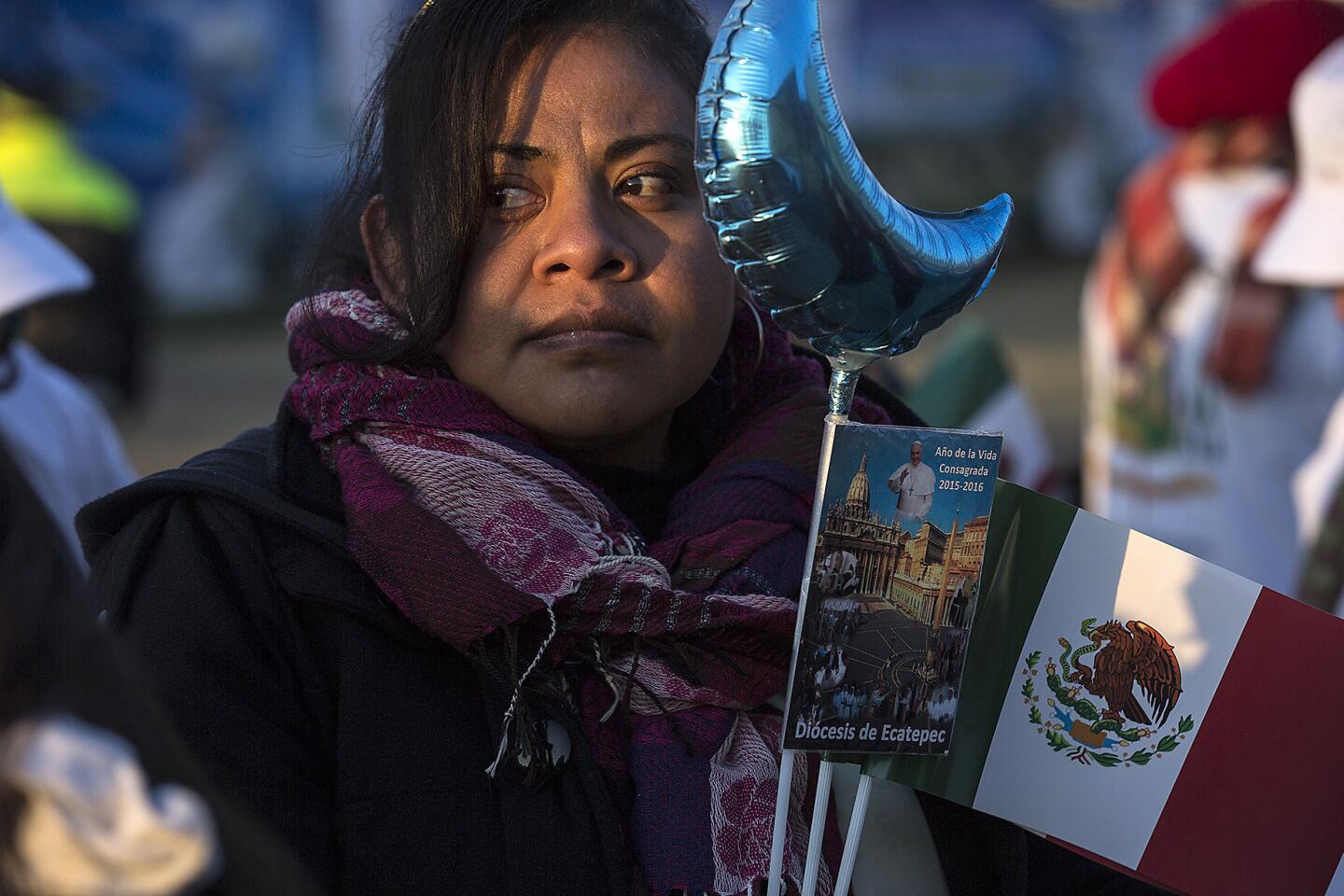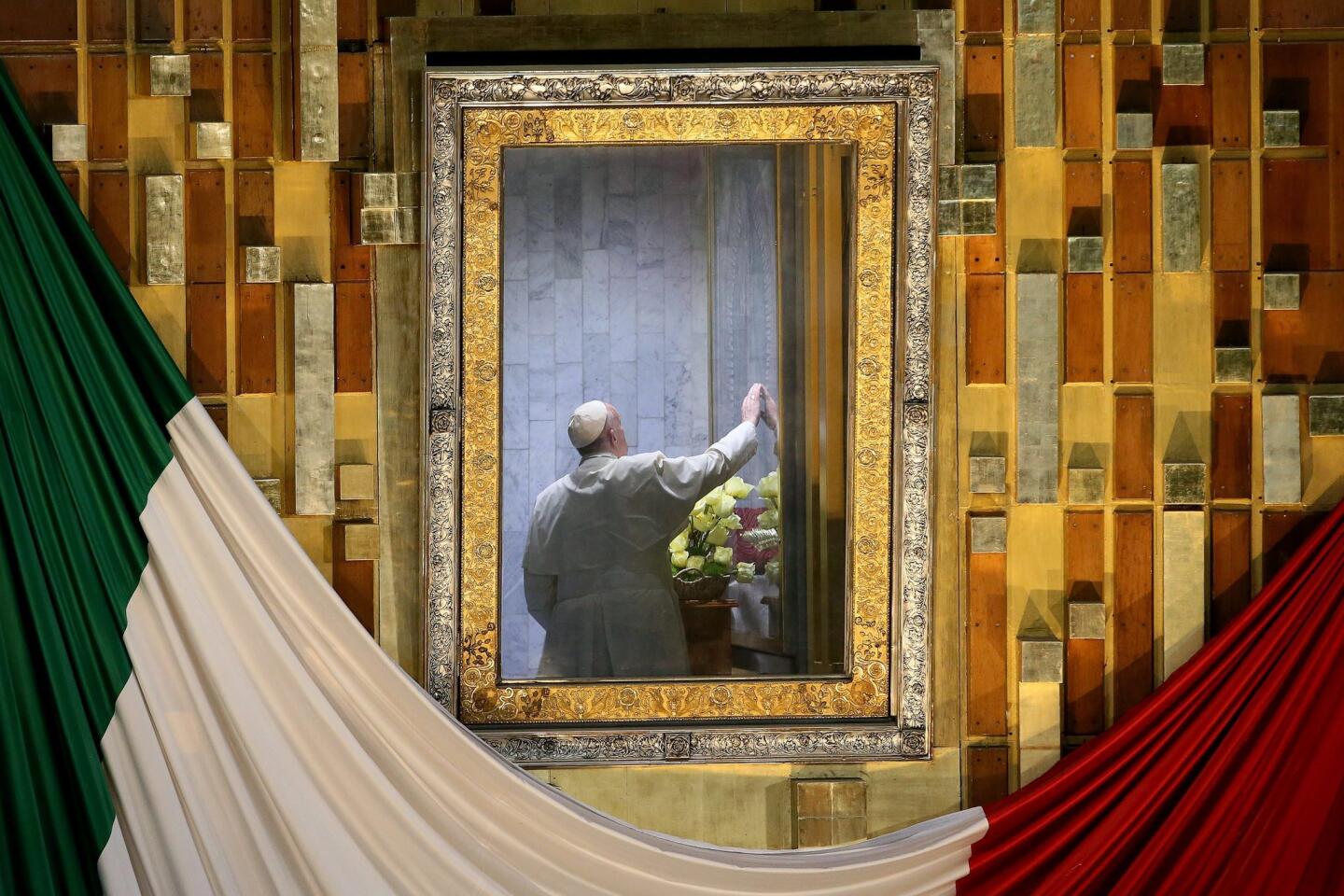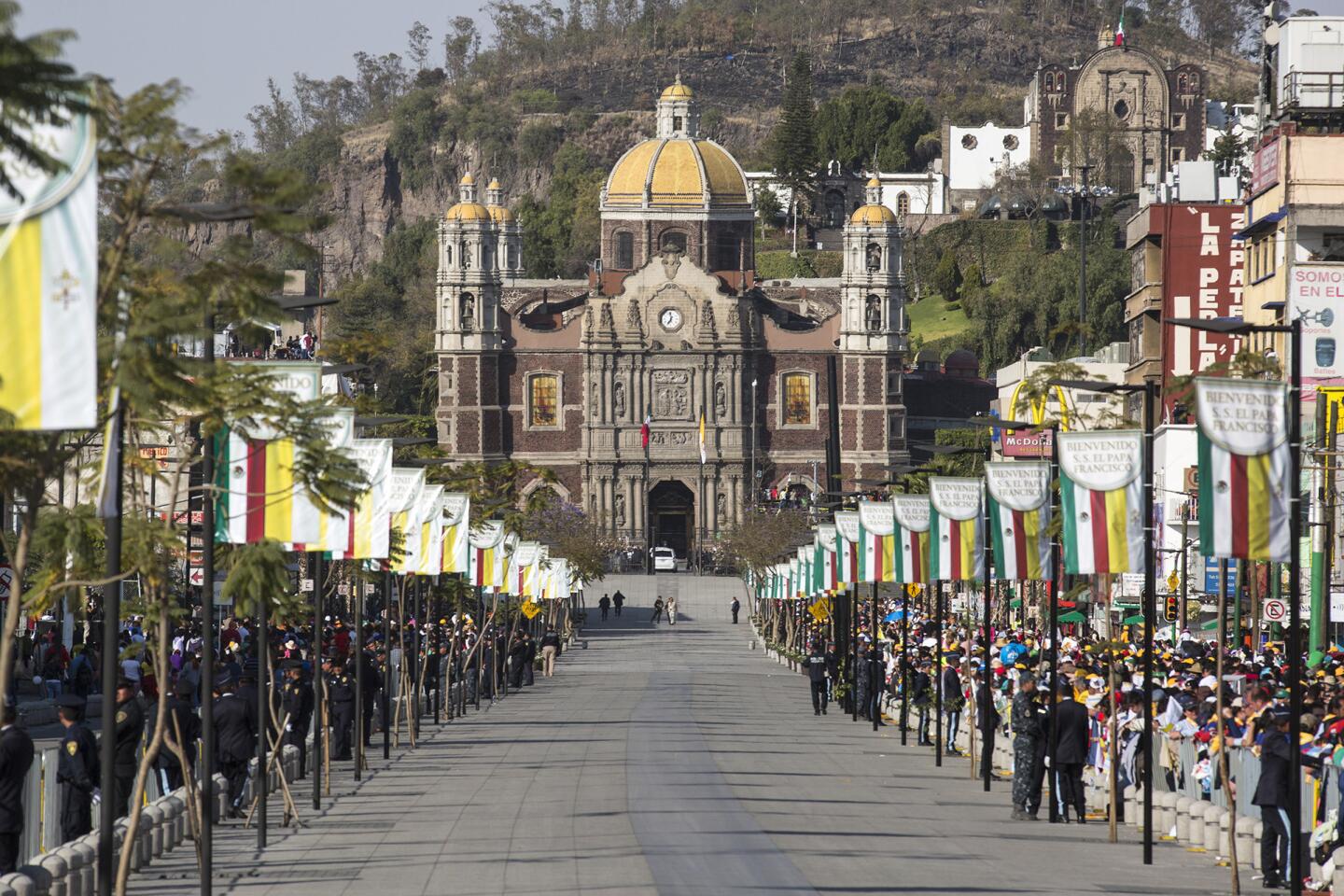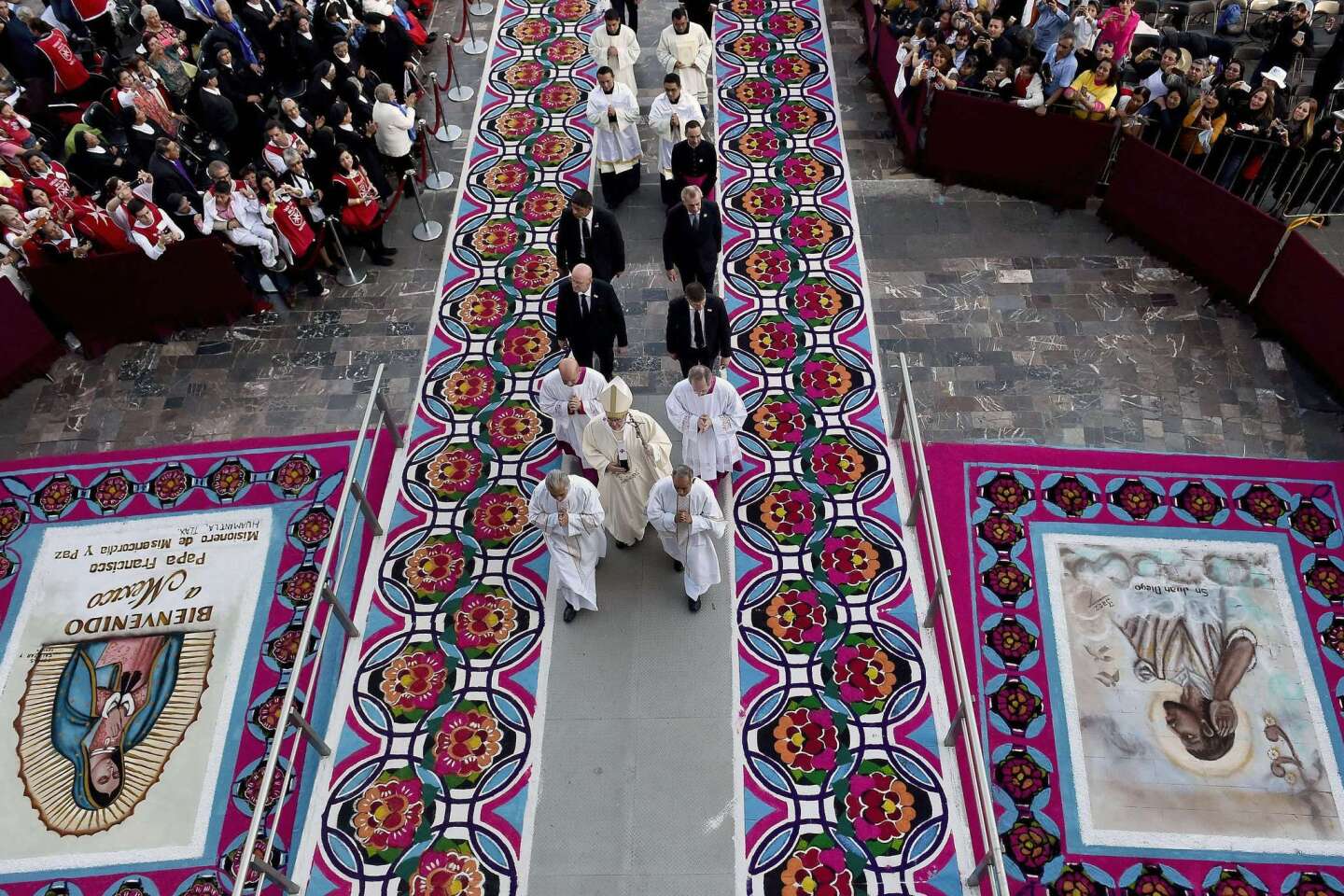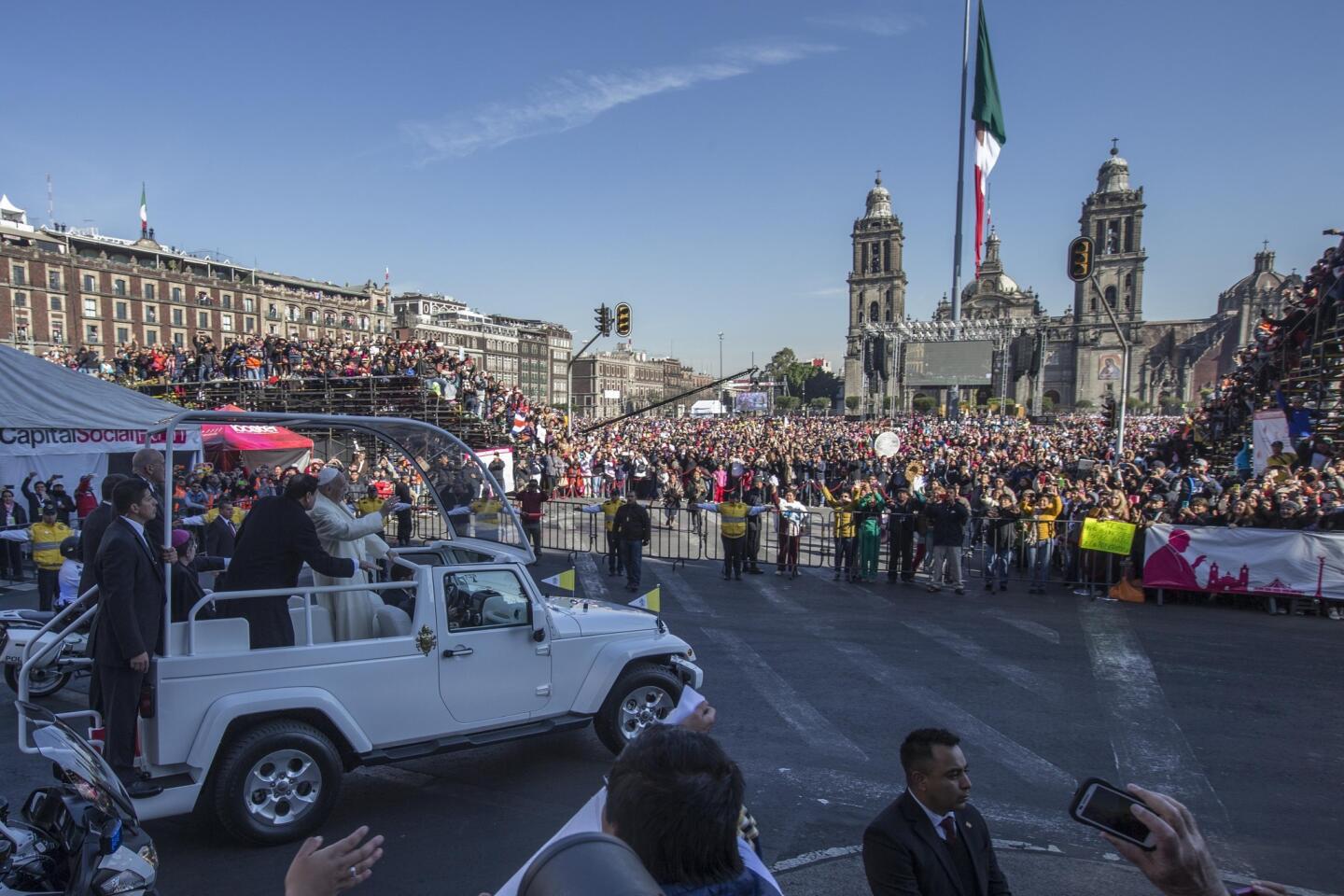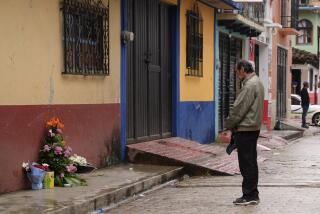Pope Francis, visiting a bastion of poverty, envisions Mexico as a land of opportunity
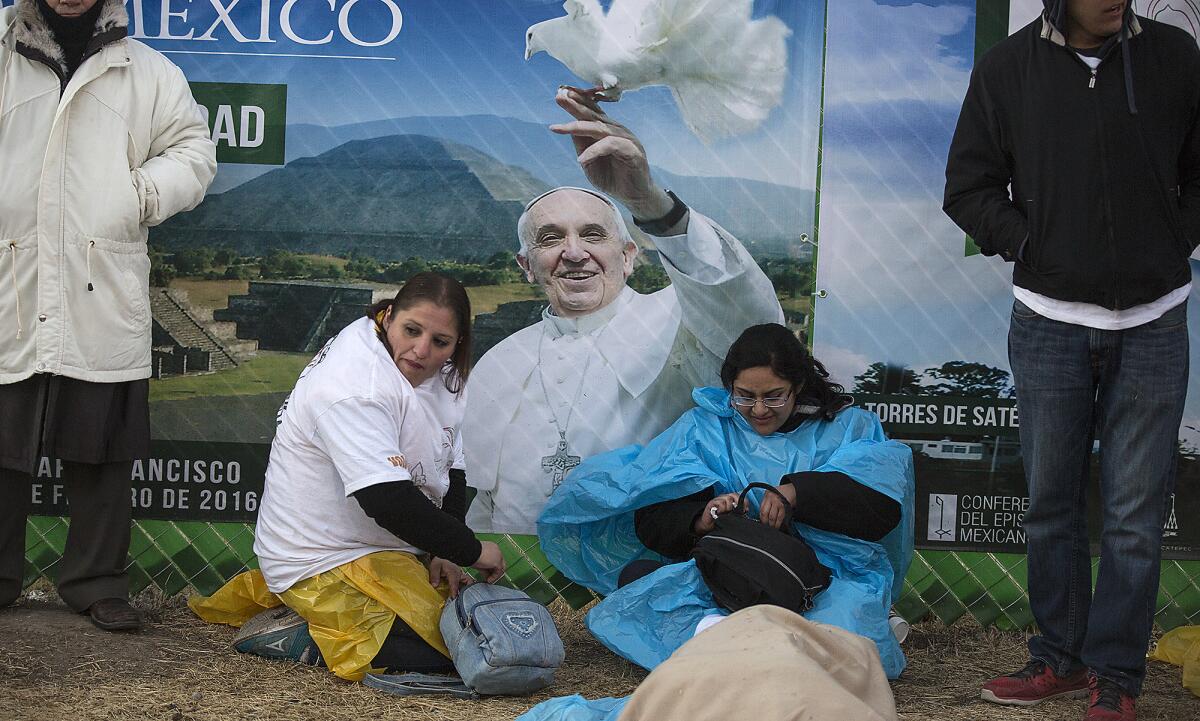
Hundreds slept outside overnight to wait for Pope Francis to arrive in Ecatepec, Mexico, on Feb. 14.
Reporting from ECATEPEC, Mexico — Pope Francis on Sunday went to one of Mexico’s poorest and most dangerous cities and urged hundreds of thousands of faithful to make Mexico a land of opportunity, “where there will be no need to emigrate in order to dream.”
Reconstructing Mexico as a country where it would be safe to stay and prosper over the threat of drug violence and other scourges, the pope said, should be the mission of a people often undermined by corrupt rulers.
In Sunday’s comments, the pope, on a six-day tour of Mexico, is continuing with his determination to take government, business and religious leaders to task for their failure to work for the disadvantaged.
“Help make this blessed land of Mexico a land of opportunities, where there will be no need to emigrate in order to dream, no need to be exploited in order to work,” the pope said as he wrapped up a Mass here in the gritty Mexico City suburb of Ecatepec.
A land, he added, “that will not have to mourn men and women, young people and children who are destroyed at the hands of the dealers of death.”
The choice of Ecatepec, with the country’s highest incidence of murdered women, for the pope’s second full day in Mexico represented his impulse to go to “the margins,” to where the most downtrodden live and survive, barely.
From here, the most poor, he went to a children’s hospital in Mexico City where guests included some of Mexico’s most rich, among them the son of communications tycoon Carlos Slim, one of the wealthiest people on the planet and a patron of the hospital.
At the medical center, with President Enrique Peña Nieto’s wife, Angelica Rivera, as host, the pope embraced sick and wheelchair-bound children, some who gave him drawings or cried.
Mexico has one of the greatest divides between rich and poor among Western countries. It is a country that is home to Slim, on the one hand, and on the other, roughly half the nation, or 60 million Mexicans, who live in abject poverty
The pope is aware of that divide, denouncing since his arrival in Mexico a society that benefits the few at the expense of the many.
In Ecatepec, more than a million people were believed to have attended the pope’s Mass, inside the venue and outdoors. They braved cold temperatures in the morning to fan out over many blocks, down street after street, to receive the first pope from the Americas.
Juan Jose Rubio Cruz, a farmer who traveled from a pueblo northwest of the Mexican capital to Ecatepec, described the “awe” he felt at the pope’s presence.
“He speaks to simple people, like me,” he said. “To sick people.”

Francisco Lozada says Pope Francis’ open-mindedness makes him proud to be his tocayo — his name twin. He keeps a quote often attributed to the pope saved on his phone. It is, in fact, a conflation and expansion of comments made by the pontiff.
See more of our top stories on Facebook >>
In the open-air Mass in Ecatepec, the pope paid recognition to Christians slain for their faith, “martyrs,” from centuries ago and from today — an allusion to the persecution of Christians in the Middle East and Africa, one of Francis’ great preoccupations.
“You cannot dialogue with the devil,” the pope also warned, departing, as he often does, from his prepared text. “He will always win.”
Instead, the pope said, people should embrace a spirit of fraternity to avoid forces that “try to separate us, making a divided and fractious family, a divided and fractious society. A society of the few for the few.”
The pope has not minced his words since arriving in Mexico, criticizing both the political elite and that of his own church for being seduced by the trappings of wealth and power to the detriment of the poor and marginalized.
The Mass Sunday gave a nod to the Easter season that has commenced for Roman Catholics, after Ash Wednesday last week ushering in Lent, the 40-day period of sacrifice. Bishops and cardinals were dressed in the purple of Lent.
Throughout the day, people staked out spots on ladders, roofs, and for some, their fathers’ shoulders, to catch a glimpse of the spiritual leader of 1.2 billion Roman Catholics.
“Se ve, se siente. El Papa está presente!” they chanted. “You can see it, you can feel it. The pope is present!”
Francisco Valdez, 24, who traveled 12 hours from Monterrey, slept outside Saturday night, hoping for the best spot to catch a glimpse of the pope. He claimed a space near the front of the crowd, waiting with his cellphone hoisted.
As the pontiff neared, a woman broke into sobs, and Valdez hit the record button on his phone. With a whir, Pope Francis had passed.
“He went so fast!” Valdez shouted. “Still, wow.”
Francisco Lozada said the pope’s open-mindedness makes him proud to be his tocayo — his namesake.
Lozada, 44, a lawyer from Ecatepec, keeps a quote often attributed to the pope saved on his phone — a reminder, he said, that inclusion is always the answer.
“A person can be spiritual but not religious,” it reads. “For many, nature can be a church.”
Francis has opened up the Catholic Church, Lozada said, and made it more down to earth.
“The pope says, ‘I’m from the pueblo [people] and for the pueblo,’” Lozada said. “And I can see that he means it.”
The pope’s visit to his city, Lozada said, no doubt has to do with its down-and-out reputation.
“The truth is, Ecatepec is a zone in conflict,” Lozada said. “People are disillusioned here — we needed this.”
While still in Mexico City, en route to the waiting helicopter, the pope stopped his motorcade and stepped from his car to greet a bevy of nuns who were jostling for space in the crowd on the sidewalk.
The nuns chatted excitedly to him as he offered a few words of thanks for their work in the church and blessed them.
Before leaving for Ecatepec, the pope drove past sparse but enthusiastic crowds lining barricaded streets in Mexico City.
“We saw him yesterday and fell in love, now we’re here again,” said Amanda Ordunez, who traveled from Colombia with several friends to see the pope.
At the Angel of Independence Monument, people expressed positive reactions to the strong language Francis used Saturday in urging the government and the Catholic Church to take tougher stances against corruption and drug traffickers.
“As an ecclesiastical authority, it was the best thing he could do,” said Luis Alfredo de la Cruz, 48, an engineer from the northern state of Coahuila, which has been hard hit by drug violence.
De la Cruz said such a public recognition of the country’s problems was sorely needed. “The only way to improve things is to recognize these issues. That’s why I think he spoke so strongly.”
Maria Rodriguez, visiting from San Diego with her granddaughter, said she hoped it served as a wake-up call for government and church leaders. “It’s time somebody shook them up.”
Gerber reported from Ecatepec and Wilkinson reported from Washington. Times staff writer Richard Marosi in Mexico City contributed to this report.
Follow @TracyKWilkinson on Twitter.
Follow @marisagerber on Twitter.
MORE ON THE POPE IN MEXICO
Meet the deportee who fashioned the altar for Pope Francis’ cross-border Mass
Mexico City welcomes the pope: ‘Francis, brother, now you’re a Mexican!’
‘This place is terrifying’: Pope visits one of Mexicos’s most troubled cities
More to Read
Sign up for Essential California
The most important California stories and recommendations in your inbox every morning.
You may occasionally receive promotional content from the Los Angeles Times.
